STARTING STRONG
Here‘s to a Year of New Strategies, Projects and Successes




Here‘s to a Year of New Strategies, Projects and Successes



Where the heck did 2022 go?
The year flew by. With COVID restrictions eased, everyone was back to business and attending in-person meetings and events. For our Associations, all of our events were sellouts, and early sellouts at that. Unfortunately, we had to turn away members who wanted to attend because of capacity issues.
Our annual dinner with Rick Zolzer from the Hudson Valley Renegades provided a more humorous presentation than we normally have from our speakers. With some funny anecdotes as well as a few typical in-between-innings games, Rick entertained all in attendance.
July’s golf outing was so overbooked that we tried to get morning and afternoon flights, but that was not available to us. The golfers had a great day as usual at Trump National.
The Lobster Bake provided a terrific networking opportunity along with delicious food catered by Wayne Hall of T&M Deli. It was wonderful to see our members talking and laughing with each other, something I truly missed during COVID.
Our last event was the Holiday Get-Together and Charity Event at the Powelton Club. Again, it was a sellout crowd and through the generosity of our members, we donated more than $15,000 to our three local charities: Food Bank of the Hudson Valley, Hospice of Orange and Sullivan and Make a Wish of the Hudson Valley. Thank you to all of our members who supported these worthy organizations!
At the CCA office, we have some new faces dedicated to providing top-notch service to our membership. While Millie Rodriguez celebrated her fifth anniversary with CCA, we welcomed Lisa Ramirez as Vice President of Communications and Vincent Rouhotas to our office staff. I am proud of how our team works so diligently to support all our members.
With our membership renewal this year, we are offering a Diamond Sponsorship that includes the annual dues; four full page ads in On the Level, our quarterly magazine; tickets to the Spring Dinner, Lobster Bake and Holiday Get-Together, as well as a foursome in the Golf Outing. The response to this offering has been overwhelming and I thank each of our Diamond Sponsors!
If history repeats itself, 2023 will be another year of sell outs at our events. To ensure you are included at the events, look for the e-mail or letter and respond immediately. Attendance is limited to how many folks the venue can accommodate and rarely can exceptions be made. I hate to have to turn anyone away.
Here is the 2023 schedule so you can’t say you didn’t know:
● April 27: Annual Spring Dinner at the Powelton Club with Orange County’s own Alan Mack, a hero and decorated pilot from the Afghanistan conflict speaking about his experiences.
● July 24: Golf Outing at the beautiful Trump Hopewell Junction Golf Course.
● Sept. 7: Lobster Bake at the Local 17 Pavilion.
● Nov. 27: Holiday Get-Together and Charity Event, again at the Powelton Club, where the holiday decorations will take your breath away.
I try to make our events fun and informative with plenty of networking opportunities for all. Our speakers are industry professionals anxious to share their knowledge and experience with us. You can walk out of these functions with some pointers to help your business as well as a business card or two.
Speaking of sharing information, Lisa puts together a bestin-class quarterly magazine that goes not only to members, but to government officials and economic development professionals as well. We are your voice with elected officials to make them aware of the concerns and needs of our members. Our economic development partners continue to be a source of work for our membership in the region.
Invite your fellow contractors, suppliers and business professionals to join our Association. If you have someone interested or that you think we should contact, please let Vinny in our office know and he will promptly follow-up.
I hope 2023 is a healthy and prosperous year!
All best wishes,
Alan Seidman Alan Seidman Executive Director
Alan Seidman Executive Director
On the Level magazine reaches the people who are building a better Hudson Valley. From contractors and union leaders to developers, policy makers, suppliers, and business owners, if they’re involved in construction they’re reading On the Level
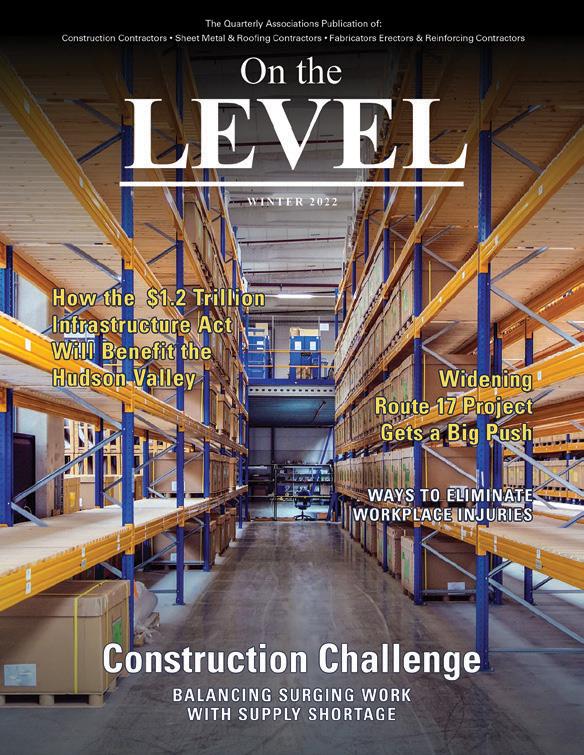

TheQuarterlyAssociationsPublicationof: ConstructionContractors•SheetMetal&RoofingContractors•FabricatorsErectors&ReinforcingContractors
THE OTHER FOUR YEAR DEGREE APPRENTICES LEARN WITHOUT THE DEBT
TheQuarterlyAssociationsPublicationof: ConstructionContractors•SheetMetal&RoofingContractors•FabricatorsErectors&ReinforcingContractors
Construction Contractors Association
Mike Adams — Board President
James McGowan — First Vice President
Joseph Perez — Second Vice President
Josh Ingber — Secretary-Treasurer
Scott Dianis — Immediate Past President
Joseph Barone
Roland Bloomer
Dan Depew
Louis Doro
Joe Jerkoski
Kurt Kaehler
Anthony Perrello, Jr.
Mark Stier
Alfred D. Torreggiani
Charlotte Van Horn
Fabricators, Erectors & Reinforcing Contractors Association
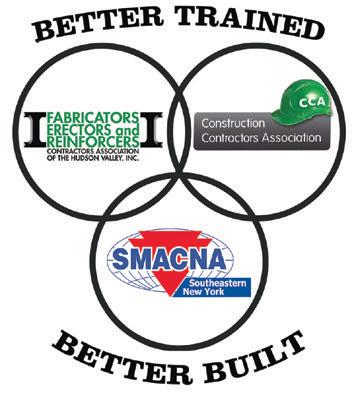
Justin E. Darrow — Chairman
Milestones: Summerbrings Retirements, andAnniversariesNewChallenges

TO ADVERTISE WITH US OR TO LEARN MORE ABOUT OUR SERVICES AND MEMBERSHIP BENEFITS, CONTACT:
Lisa Ramirez, Editor: lramirez@ccahv.com
Millie Rodriquez, Advertising: mrodriguez@ccahv.com
DESIGN AND CREATIVE SERVICES BY FisherMears Associates | FisherMears.com
PRINTING SERVICES BY ColorPage Marketing and Publishing | ColorPageOnline.com
On the Level is the quarterly publication of
THE CCA OF THE HUDSON VALLEY | SERVING THE PEOPLE WHO BUILD BETTER SINCE 1956
845-562-4280

CCAHV.com
330 Meadow Avenue Newburgh, NY 12550
Jake Bidosky — Vice Chairman
Bernie Hillman — Secretary
Daniel Teutul — Treasurer
SMACNA of Southeastern NY
James D’Annibale — President
Steve Mulholland — Vice President
Dominick DiViesti — Treasurer
Mark DiPasquale — Secretary
Louis J. Doro — Immediate Past President
Daniel Harden
Richard K. Berg
Walter “Chip” Greenwood
William Haskel
Dennis LaVopa, Jr.
Association Staff:
Alan Seidman — Executive Director
Lisa Ramirez — Director of Communications and Membership
Millie Rodriguez — Executive Assistant
Vincent Rouhotas — Administrative Assistant

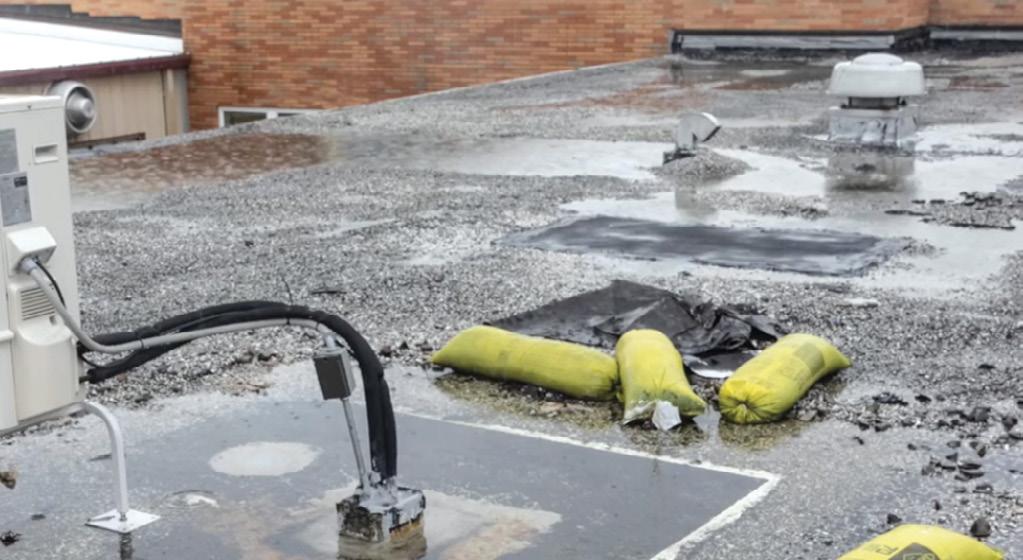

CCA Members will learn how to minimize their risk and protect valuable data at an exclusive webinar, The Changing Landscape of Cyber Protections: What You Need to Know and Do Now, with cybersecurity expert Carl Cadregari, Executive VP in the FoxPointe Solutions/Information Risk Management Division of The Bonadio Group.
Carl has worked with companies across most vertical markets, from small businesses to multinational organizations. In his webinar, you’ll learn about the most current cybersecurity challenges, and Carl will share key steps you can take to reduce risk. And in this issue of On the Level (page 32) he offers tips on how to guard against ransomware attacks.
This free webinar will be held 2 p.m. March 14 via Zoom and is open only to CCA members. For an invitation contact the CCA at vrouhotas@ccahv.com or 845-562-4280.

When Orange County voters approved a $159 million capital project to improve and renovate Orange/Ulster BOCES campuses, they not only ensured safe and appropriate space for students, but also paved the way for hundreds of construction jobs.
Voters approved the project by a slim margin — unofficial totals were 2,350 to 2,240 — and it’s likely that an energetic “Get Out the Vote” campaign spearheaded by the Hudson Valley Building and Construction Trades Council helped tip the outcome.
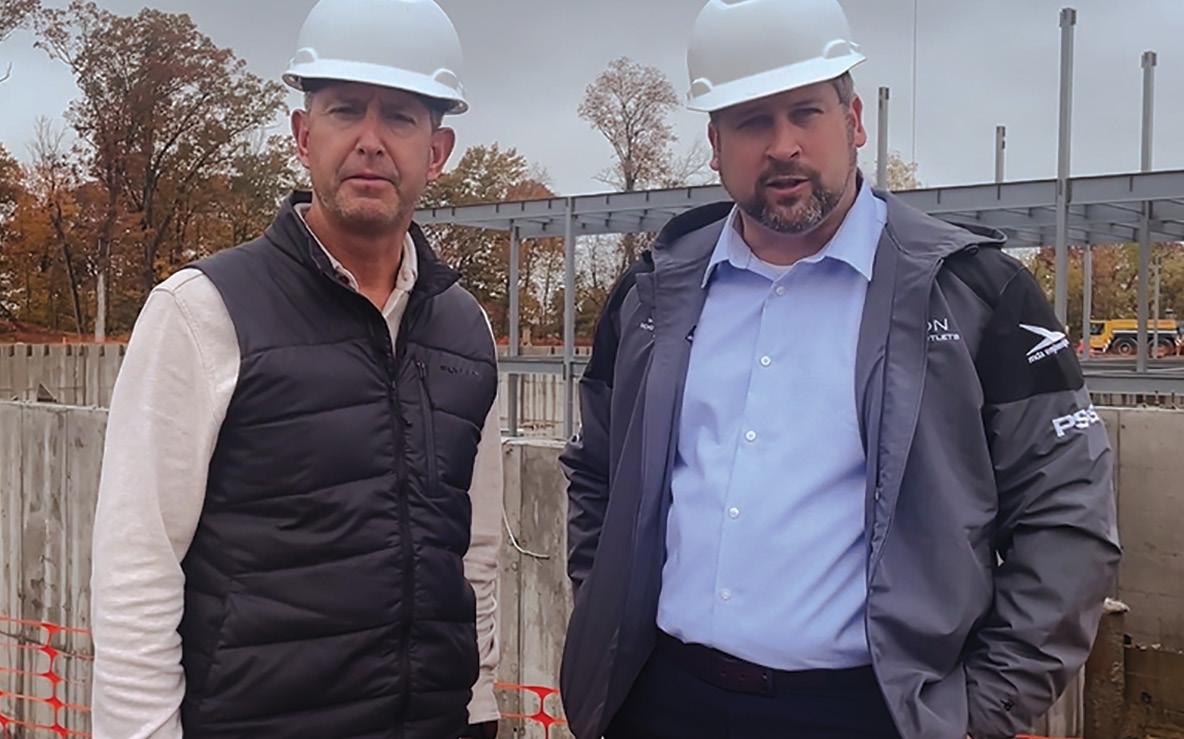
The construction and renovations to the three Goshen campuses are expected to begin in 2024 and include the addition of instructional areas, infrastructure upgrades, and the renovation of out-of-date learning and
support environments. These upgraded facilities will enable educators to better prepare students for college and careers, including in the construction trades with programs such as carpentry, electrical construction technology, HVAC/plumbing and welding.
Additional programs offered by Orange/Ulster BOCES include an array of CTEC options vital to the local workforce, such as cosmetology, automotive, culinary, and heavy equipment, plus health, security, STEM,
visual arts career academies and more. Students from component school districts in Orange and Ulster counties can attend, and many graduate ready to enter the workforce.
In addition the Division of Special Education provides specialized instruction for children with needs that cannot be supported in their home school districts, and there are Adult Education programs.
The Hudson Valley Building and Construction Trades Council (HVBCT), which represents nearly 30 local unions, leveraged the power of its membership, launched a get-out-the-vote effort that included mailings and social media. The project’s $159 million budget and the anticipated Project Labor Agreement means years of work for local skilled labor.
“Please get out and vote,” urged Dean Tamburri of LIUNA / Laborers Local 17 in a social media video
message posted the morning of Oct. 25, the day of the vote. “Tell your neighbors, tell your friends, tell your family that this is a very important vote for the construction industry.”
The scope of the project was determined by a Building Condition Survey (BCS), which identified significant areas of need across the three campuses. New York State requires all school districts to perform a BCS at least every five years.


The goal of the upgrades are to reflect the environment of today’s workplaces and educational settings, thus better equipping students for career success. That, and the work will enhance the health and safety of everyone who works and learns on the campuses. For example, the HVAC updates will improve air quality and circulation in the wake of the COVID-19 health crisis, and new security stations and entrance controls fortify safety and security capabilities.
A Building Condition Survey (BTS) is an assessment of the physical, mechanical and electrical condition of the buildings, systems and external areas within a “school estate.”
The BTS provides objective information about the condition of buildings and helps maintain a safer, more conducive learning and working environment for students and staff. A BTS and the work identified and performed also protects the community’s investment in its school facilities.
The New York State Education Department requires all public school districts and Board of Cooperative Educational Services (BOCES) in New York complete a Building Condition Survey for occupied public school buildings every five year, at minimum.
The capital project includes repairs and enhancements at three Orange Ulster BOCES campuses in Goshen, N.Y.:
The building will be updated and original classroom functions restored, interior circulation will be improved, and a new security entrance created.
Total cost: $67 million. Work includes:
• Replacement of original roof
• Replacement of original single-pane windows
• Replacement/upgrade of electrical, heating, ventilation, and air conditioning
• Energy efficiency upgrades
• Construction of security vestibule
• Replacement/upgrade of failing sanitary and well systems
• Masonry cleaning/repointing/repairs in select locations
• Replace selected interior doors, interior wire-glass and folding partitions
• HVAC/exhaust in selected shop classrooms; HVAC replacement in classrooms to central chilled water system
• Replace HVAC pneumatic controls with DDC
• Electrical distribution repairs
• Replacement of lighting with LED fixtures in selected areas
• New generator
• Asphalt pavement repairs/repaving
• Renovations to classrooms, corridors and stairs, bathrooms and greenhouses.
• Classroom addition, including sitework
• Loading dock addition, including sitework
This building will be updated to add support space for special education, conversion of administrative space to instructional space and a new security entrance.
Total cost: $57 million. Work includes:
●• Replacement of original roofs and single-pane windows
• Electrical, heating, ventilation, and air conditioning upgrades
• Energy efficiency upgrades
• Construction of security vestibule
• Conversion of space to classrooms
• Masonry cleaning/repointing/repairs
• Repairs to retaining walls, exterior walkways, stairs, and play areas
• Replace selected interior doors
• Therapy pool edge refurbishment
• HVAC replacement in 1988 addition
• Add air-conditioning in lobby and gymnasium
• Replace hot water heater
• Replace HVAC pneumatic controls with DDC
• Electrical distribution repairs
• Replace lighting with LED fixtures in selected areas
• Provide fire alarm in required locations
• Asphalt repairs/repaving
• General classroom, corridors and stairs, auditorium, cafeteria/stage, library, bathroom and courtyard renovations
The work completes the Master Plan including additional conversion of the old Arden Hill Hospital to educational use. Total cost: $35 million. Work includes:
• Roof replacement
• Replacement of exterior windows and select overhead doors
• Renovations creating an additional 27 classrooms
• Construction of new gymnasium
• Masonry cleaning/repointing/repairs
• Loading dock repairs
• Minor interior finish repairs
• Repairs to electrical distribution
Asphalt pavement repairs/repaving



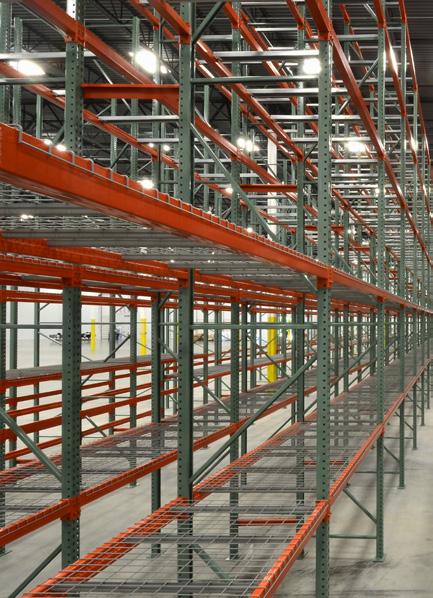





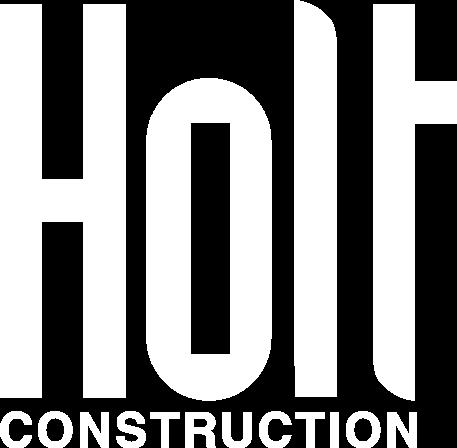

Company was established in 1899 and, with three family generations of practical expertise, has established a 123-year reputation for unparalleled integrity, quality and service in the electrical field, with over 1,200 employees and an annual sales volume exceeding $650,000,000. A determination to lead, instead of to follow, has been the cornerstone of the growth and success of E-J Electric throughout its long and distinguished history.
Active in all facets of electrical contracting in the New York, New Jersey and Connecticut area as well as nationally, E-J Electric projects vary in size from service and maintenance calls to projects over $300 million, and typical installations include transit facilities, office buildings, power plants, hospitals, financial services, mission critical, data centers, airports, universities, theaters, sport stadiums and more.
E-J is a highly versatile company, offering services ranging from the delivery of bulk power, to value engineering, to energy conservation, to computer networking in both new or existing facilities. E-J Electric and its affiliates provide the design, layout, project supervision, and installation expertise necessary to assure a highly reliable, economical, state-of-the-art installation that meets the needs of each client. Headquartered in Long Island City, E-J Electric also maintains a Hudson Valley office in Newburgh. To learn more call 718-7869400 (Headquarters) or 845-234-4280 (Hudson Valley Office), or visit www.ej1899.com

TriCo Electric of Goshen, LLC is among the leading electric companies in Orange County and the surrounding area. Staffed with a Licensed Master Electrician since the company began in 2017, TriCo is continuously expanding in knowledge, as well as clientele. Both licensed and insured, the TriCo team of certified electricians take pride in getting the job done safely and efficiently. From outlets to generator installations, TriCo Electric of Goshen, LLC is able to handle most phases of electrical services. To learn more, call 845-294-8882.
USI Insurance Services began in 1994 with a single office of $6.5 million of revenue and 40 associates. Today, USI (100 Summit Lake Drive, Suite 400, Valhalla, NY) is approaching $2 billion in revenue with more than 9,000 associates in approximately 200 offices across the country.
USI has served over 500,000 clients meeting their property and casualty, employee benefit, personal risk and retirement needs nationwide. They boast more than 150 years of consulting and brokerage experience through their acquired agencies, with local offices dating back in their communities as far as the late 1800s. USI combines industry leading national capabilities delivered through longstanding, passionate and committed local service teams. USI stands for Understand, Service and Innovate. USI works to Understand the specific needs of their clients, provide an unparalleled local Service experience, and Innovate with cutting edge solutions. To learn more visit USI.com.

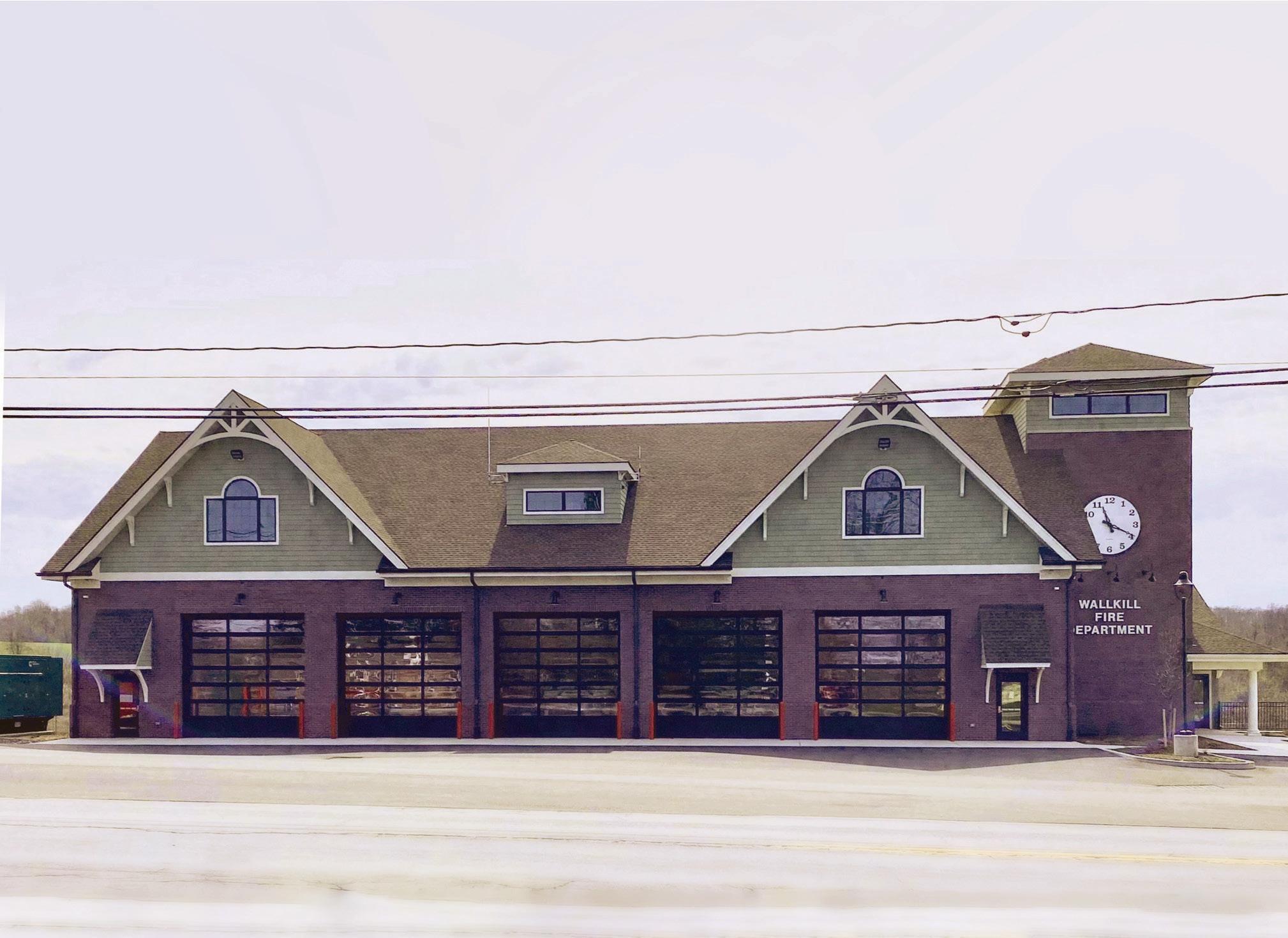



There is a lot of noise in the world today that detours business owners from charting a confident course into the new year.
For construction contractors, who are now feeling the COVID-19 impact that most other industries experienced in 2020, that noise revolves around replacement of dwindling backlogs, material price increases, continued labor concerns, and the impact of interest rate hikes on capital expenditures. With no plans for additional governmental assistance programs, the potential to see a wave of contractor failures is real.
And while it is easy in the doom and gloom that comes with the shorter days and longer nights of winter to discuss inflationary concerns or debate if a recession is looming or already here, it feels more appropriate in the New Year to focus on the strategic planning techniques contractors can employ to capitalize on the opportunities we believe will emerge during 2023, like the first flowers of spring.
Take inventory regarding how you have been dealing with the price fluctuation of construction materials. To mitigate price fluctuation, consider purchasing and storing stock items in advance or secure a purchasing agreement for stock items in an effort to lock in prices. Review if change orders are being accepted for increased costs of construction materials or altered lead times for purchasing materials.

With so much talk in the industry around other construction contractors in distress and fear of failures, this is a good time to revisit and update your subcontractor prequalification process. When the contractor’s prequalification program relies on year-end information, the issue becomes the reliability of outdated financial statements on which you are making award decisions.
In addition, 2021 saw the end of the government grant programs, such as PPP and ERC, so results may have been skewed. Asking for updated financial information, whether CPA-prepared or not, could give the qualifying contractor greater insight into the current financial health of a subcontractor before it is too late.
Take note of increased costs this year due to inflation. If you implement new innovations to streamline operations, you may be eligible for R&D credits. In the event of future disasters or slowdowns, have a plan in place and make sure your team knows the proper procedures to execute during a business crisis.
This is an ongoing review of the efficiency of your projects. It is essential to have a formal policy in place for communicating, reviewing, and documenting actual job performance in relation to the budget. Management should review job costing and profitability on a regular basis.
Reflect on whether your business has sufficient internal controls in place to deter the opportunity for someone to commit fraud, including your remote employees. Ensure job costs are being posted to the correct project. Also review how journal entries are originated, approved, and posted within your accounting environment.
Hackers love the construction industry as they perceive it to be one with a high proliferation of companies within the middle market that are either unsophisticated when it comes to investments in technology or view these types of investments as having little to no return. Mix in times of financial and general uncertainty, and cybercriminals have the perfect setup to prey on already vulnerable and fearful companies.
While the construction industry may be a late adopter of cyber and information security protocols, it is never too late to promote awareness throughout the organization and foster an environment where it is ok to be skeptical of an email, a request from a new face on the construction site, or a new vendor payment process.
Ensure that you and your management team know what to do if your company experiences a cyberattack. Have formal policies and procedures in place to monitor cyber risk, including exercises such as penetration testing. Utilize a third-party provider to run crisis management and have a designated cyber expert on staff.
This makes the list every year, but is even more important in today’s economic climate. We all know that contractors fail in good times due to cash flow constraints, let alone in tough financial times. Each construction project has its own cash flow ecosystem. By implementing and employing a project-centric cash flow forecast and operating budget process, the contractor can identify where projects, and the company, will experience cash surpluses/deficits and understand how this will impact the entire business.
These reports should be fluid, cover a 6–24-month outlook, and provide the construction financial manager with a deeper insight into the company. Ensure you make changes in real time to address potential cash shortfalls and project profitability matters. The power of this strategy is, when a constrained period is identified, management will be able to take the necessary steps to identify other sources of cash flow that will carry operations.
For the construction contractor, financial reporting on the company-wide and project level must be the foundation of every business decision upper management makes. Real-time and accurate financial reporting will help the contractor identify issues early and remediate them contemporaneously. After all, yesterday’s issue is today’s loss. But financial reporting should not stop at the job or corporate level. Identifying and benchmarking your company to construction industry key performance indicators (“KPI”) can help the contractor identify if a certain metric is above/below industry average and where the contractor is excelling or needs help, as compared to the rest of the industry.
While these are powerful and insightful techniques, they do require the construction financial management team to capture that data in real time.
Nobody likes tax surprises, and the construction industry is certainly no exception. In an industry where cash is king, a proactive income tax deferral strategy becomes an effective means to maintain corporate capital. Based on the types of contracts a construction company performs under, there are opportunities to employ an accepted income tax reporting method as the basis of a deferral strategy.
For example, while a construction company’s overall method may be accrual, to the extent any projects are completed within a single tax year, that project could qualify for cash basis. Further, a residential contractor (not a homebuilder) could employ a 70-30 accrual/ cash basis split on reporting a qualifying project for tax. In terms of tax reform, assuming nothing changes, we
know the current income tax rates will sunset by the close of 2025. If a contractor is already employing an accepted deferral methodology, the strategy could shift to accelerating the recognition of income for tax advantage at the lower rates, which is a real dollar savings. These are powerful techniques that should always be revisited, especially since cash flow is vital to a project’s success. Siphoning off cash unexpectedly due to an April 14 phone call can be extremely detrimental to the construction contractor.
This is one of the more overlooked topics for many construction company owners and executives, not because it is unimportant but because it demands time, and where does the contractor want to be – at the project site or in an office?
On the succession side, having a plan in place to identify, engage and create success for the next executive is imperative. In an industry where there is a skilled labor shortage, not to mention the Great Resignation, a formalized and practiced succession plan acts as a differentiator for future-facing contractors.
In terms of wealth preservation, owners of construction companies still have the opportunity to transfer highly valuable/appreciable assets out of their estates, tax free. By utilizing the lifetime gift tax exemption, which is $12,060,000 per individual for 2022, an owner can move the ownership of the company to the next generation while controlling the tax implications. Like current income tax rates, this exemption is subject to potential change in 2023 and is scheduled to sunset in 2025.
To the extent the owner of a construction company has not done this type of planning yet, 2023 is the time to get strategic on this point.
Every market condition presents opportunities, and this one is no different. So keep your eyes open. These may come in the form of labor or other talent, new customers as you step up and fill a market void, or accelerated investments in technology. Whatever it is, be open to it.
Your service providers and advisors are key sources of innovative ideas and strategies. Stay engaged in a continuous dialogue with them to understand what they are seeing across the industry. For example, a conversation with your bonding agent could reveal problems other contractors are experiencing and help you avoid them through proper planning. Keep in close contact with your audit and tax professionals, as their unique insights into your financial condition can yield valuable recommendations for greater efficiencies and cost savings. This discussion should extend to the bank and surety, making sure they are on board with any upcoming requests that will require your credit providers’ backing.
In other words, leave no room for surprises.
While not an all-inclusive list, these items are certain to continue to impact the construction contractor in the office and on the job site. Success for the upcoming year can be achieved through continued dialogue with your people and professionals as the operating landscape continues to evolve; better access to real-time project data (financial and non-financial) that will enable you to make critical job decisions in the moment; and an emphasis on conserving corporate capital while being open to new opportunities and the right type of growth.
As we close the books on 2022, a year which saw some reactive decisions, the construction industry has the opportunity to proactively script and plan 2023.
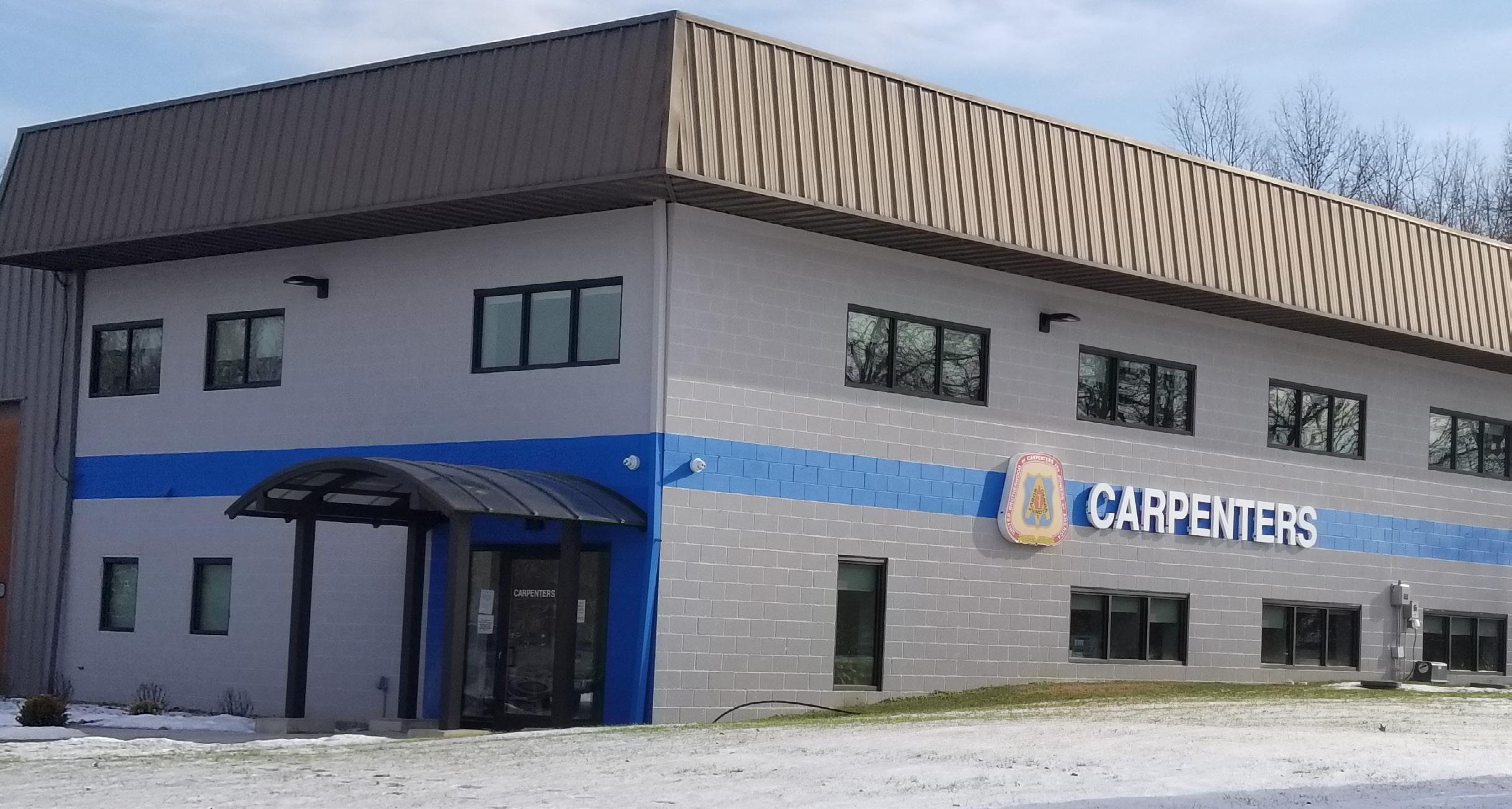
When you want trained professionals, you hire union carpenters.


There’s no greater asset in the building industry than a worker who shows up wellprepared and ready to go. It can mean the difference between a project that runs smoothly and a project that runs out of time. The Carpenters union recognizes this and has provided contractors with world-class quality and professionalism for 130 years – in addition to a can-do spirit to step up to meet any challenge. It’s not just a relationship, it’s a true partnership, and the entire building community benefits.
nasrcc.org






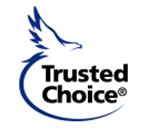

CCA members are among the kindest, most generous people around. Here, we celebrate their good deeds and labors of love:
The folks at Callanan Industry’s Albany office rolled up their sleeves and together helped save an estimated 72 lives at their annual blood drive.

Blood donors help patients of all ages: accident and burn victims, heart surgery and organ transplant patients, people with sickle cell disease, those battling cancer. In fact, The American Red Cross estimates that every two seconds, someone in the U.S. needs blood.
Atlas Security Services of Goshen spent a sunny October Sunday providing security to the tens of thousands of marchers at the Making Strides Against Breast Cancer walk, held at Woodbury Common.

The mission of Making Strides is to celebrate survivors and pay tributes to loved ones lost, all while raising awareness and funds. Proceeds to help the American Cancer Society fund breast cancer research and provide education and guidance to help prevent, find, treat and survive cancer.
The good people at Atlas donated their services during the event, helping to ensure that everyone stayed safe and enjoyed the day.
No one should face breast cancer alone. The American Cancer Society helpline provides information and support 24/7 at 800-227-2345.
Callanan Industries is a leading supplier of paving materials and construction services in New York, and the “Callanan Cares” program supports numerous causes through volunteer projects, fundraisers, financial and material donations, and awareness campaigns.
One pint of your healthy blood can save as many as three lives. For information on how your organization can host a blood drive, visit www.redcrossblood.org.
Each year, the Bonadio Group participates in the national United Way campaign, and this time they kicked things off with a Pie-the-Partner event!

It worked like this: employees made donations for the privilege of pie-ing their favorite Partner or Principal. All donations benefited the United Way of the Greater Capital Region, which brings individuals and groups together in a community wide effort to help people by advocating for the health, education, and financial stability of every person in the Greater Capital Region.
Bonadio is a top 50 CPA firm which delivers a full spectrum of services through a team of professionals with expertise in industry areas including construction, labor, manufacturing, government and more. They’re also really great sports!
Kudos to our amazing Yorktown/Briarcliff office branch manager Donald Dwyer who recently completed a 56-mile hike backpacking on the Cranberry Lake 50 trail in the Adirondacks to raise funds for the Howard Hanna Children’s Free Care Fund!

The Howard Hanna Children’s Free Care Fund supports local children’s hospitals and regional pediatric free care programs, helping families to provide their children with necessary and life-saving medical care, treatments, and services.
From helping families afford life-saving treatments for their children, supporting education for children with special needs, or assisting with expenses associated with end-of-life care not covered by insurance, Howard Hanna agents and employees have supported this mission by volunteering their time and resources. Each year, Howard Hanna raises more than $1 million for the Free Care Fund.
Food insecurity - not knowing if there’s enough safe and nutritious food in the house to feed the whole family - affects far too many households, with many receiving no formal assistance.
Thanks to the team at Marshall and Sterling’s Poughkeepsie office, that uncertainty will be eased for hundreds of local families. The office partnered with Feed the Children to gather more than 20,000 pounds of nonperishable food and personal hygiene supplies, which volunteers then distributed to 400 households.

In November of 2007, a claimant suffered an injury to his right leg. After a long healing period, a workers’ compensation law judge determined that the claimant was permanently partially disabled, and classified him with a 51 percent loss of wage-earning capacity.
Prior to reforms enacted in March 2007, the claimant would have been entitled to benefits for life. The 2007 reforms, however, had put in place durational caps for partially disabled claimants. Under the new law, the claimant was entitled to a maximum of 350 weeks of PPD (permanent partial disability) benefits.
In March 2018, the claimant passed away due to causes unrelated to his prior injury, 311 weeks after his date of classification. His minor child asked the Workers’ Compensation Board to award him the remaining 39 weeks of his father’s award. The Board said no, explaining that the type of award their father had received was a non-scheduled permanent partial disability award under section 15-3 w. Unlike awards made under sections 15-3 a–u, non-schedulable awards are for compensation due during the continuance of disability.

In this case, death clearly ended disability and hence ended the entitlement to benefits.
The claimant’s child appealed, and the Appellate Division’s Third Department reversed the Board, and awarded benefits for the remaining 39 weeks. Although the decision went against decades of prior practice, the court reasoned that it was important to eliminate a disparity in the way that permanent partial disability awards were treated when claimants die of causes not related to their work-related injury.
The workers’ compensation law, in sections 15-3 a-u, provides for an award of a fixed number of weeks for loss of certain body parts. For example, loss of an arm is worth 312 weeks of compensation. The schedule award in cases of partial loss of use of an arm is reduced based upon the percentage of impairment according to medical guidelines. With schedulable awards, should a claimant die of unrelated causes, benefits continue to dependents. The court reasoned that the now capped non-schedulable permanent partial disability awards were analogous to schedule awards, and ascribed to the legislature the intent to create equity between the classes of partially disabled employees.
This past October, the Court of Appeals, the highest court in New York, reversed the Third Department, holding that claimant’s
child was not entitled to benefits. The Court of Appeals determined that the two types of permanent partial disability were meant to serve different needs, and that the Third Department misread the intent of the legislature. Non-scheduled permanent partial awards are meant to compensate for loss of wage-earning capacity, and both the statute and a long history of court decisions contemplate the possibility that wage-earning capacity can change over the course of a permanent partial disability. The Court contrasted this circumstance to a scheduled award, which is fixed at the time it is awarded. Thus the Court found no basis for upsetting longstanding practice, in spite of the 2007 reforms.
So the dependents of an injured claimant can receive benefits for a permanent partial disability award after the worker dies from a cause unrelated to the accident that caused the claim, but only if it was a scheduled award under sections 15-3 a–u. For non-schedule benefits awarded under section 15-3 w, benefits cease if there is an unrelated death.
Can the heirs of an injured worker receive benefits if the worker dies from a cause unrelated to the accident that caused the claim?
Michael
John
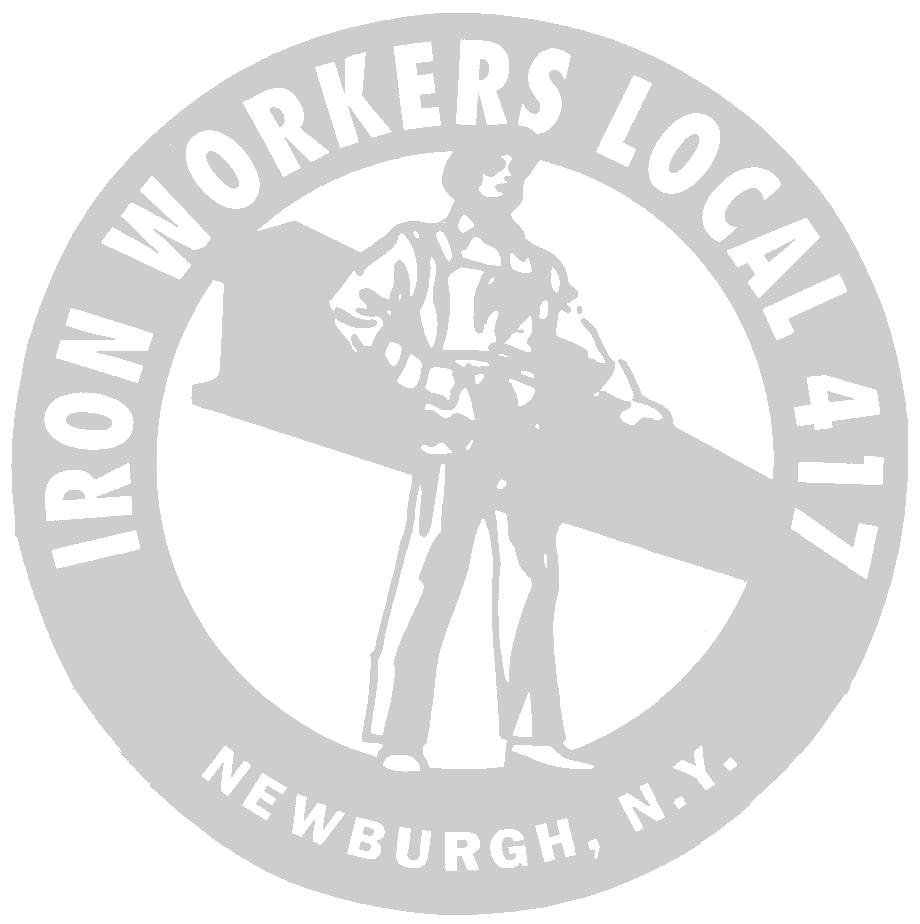
Keith
Timothy Cerone
Zachary Gaydos
Mark Gaydos
John Prazmark
James McGrath Matthew Schmidt
Owen McGuire
Richard Schroder

Members of the 2023 Stewart Military Appreciation Picnic Planning Committee have been meeting regularly in recent months, laying the groundwork for the region’s largest event for military members and their families.
Scheduled for Fall 2023, the event is traditionally held every three years at Stewart Air National Guard Base. Like so many events that were canceled as a result of the COVID-19 pandemic, the gathering was scheduled for 2020, canceled and rescheduled for 2021, and once again postponed in 2022.
But the Military Appreciation Picnic — a day of great food, entertainment and family activities — is back on, and thousands of guests are expected to
attend. It is a monumental undertaking, made possible only by the generous donations of many local organizations and individuals.
The Planning Committee has launched a fundraising campaign and is seeking benefactors to help make this year’s Military Appreciation Picnic special, and local and regional not-for-profits, community organizations and businesses have always given their generous support. Volunteers are also needed to set up, clean up, and do everything necessary to ensure that our guests of honor — the enlisted military members, their spouses and their children — enjoy the day and are shown our admiration, respect and appreciation.
We hope you will join us in supporting this event by becoming a Stewart Military Appreciation Picnic Benefactor. There are opportunities to become a Stewart Military Appreciation Picnic Benefactor at several levels, and all benefactors will be recognized at the event.
To learn more about becoming a Picnic Benefactor, to make a donation or for information on how your organization can help, call Organizing Committee Chairperson Alan Seidman at 845-562-4280 or email aseidman@ccahv.com. To donate online, visit https://cfosny.org/our-funds/designated/military-appreciation-day-fund.








We’re not just invested in your family’s financial security, we’re invested in you.
Affinity BST Advisors provides comprehensive wealth and life planning for business owners, executives, and successful families. Our first focus is learning about what our clients want to achieve and creating strong relationships. From there, we present plans and options that progress towards securing family legacies.



you where you want to go.
We empower our clients with knowledge so that they know they are making the best decisions for themselves and their families.
Learn more at www.affinityBSTAdvisors.com
Since 1956, the Construction Contractors Association of the Hudson Valley has had a hand in almost every significant construction project in the region. With a commitment to providing quality management coupled with outstanding workmanship, CCA members get jobs done right, on time and within budget.




• The power and leverage of strong relationships with state, local and federal officials

• Project leads
• Exclusive networking and informational opportunities
• Access to the CCA directory of contractors, suppliers and service providers
• The support of the CCA staff
• The money saving support of the CCA’s labor expertise regarding compliance, wage and fringe issues, and grievances
• Competitive health insurance plans with premium rates not available in the open market
• Retirement planning
Advocacy. Community. Projects. News. Events. On your computer, laptop or mobile device.

Visit. Explore. Sign up now.
The Construction Contractors Association of the Hudson Valley is proud to offer notary public services to our members at no charge.
Two members of the CCA’s staff, Executive Assistant Millie Rodriguez and Administrative Assistant and Vincent Rouhotas, are commissioned New York State Notary Publics, having successfully completed the required training.


A notary’s duty is to screen the signers of documents for their true identity, their willingness to sign without duress or intimidation, and their awareness of the contents of the document or transaction. Property deeds, wills and powers of attorney are examples of documents that commonly require a Notary.
The Chrys Group
Michael Chrys, CIMA® Managing Director Wealth Management Advisor
518.782.4094
michael_chrys@ml.com
Merrill Lynch Wealth Management
26 Century Hill Drive Latham, NY 12110
fa.ml.com/chrysgroup
Merrill Lynch, Pierce, Fenner & Smith Incorporated (also referred to as “MLPF&S” or “Merrill”) makes available certain investment products sponsored, managed, distributed or provided by companies that are affiliates of Bank of America Corporation (“BofA Corp.”). MLPF&S is a registered broker-dealer, registered investment adviser, Member SIPC and a wholly owned subsidiary of BofA Corp. Investment products:
The Bull Symbol and Merrill are registered trademarks of Bank of America Corporation. CIMA® is a registered certification mark of the Investments & Wealth Institute®. For more information about the Institute and the CIMA certification, please visit investmentsandwealth.org.
© 2022 Bank of America Corporation. All rights reserved. MAP4264780 | AD-11-22-0282 | 470944PM-0222 | 11/2022
If you need notary services, give the CCA office a call at 845-562-4280 to let us know you’re coming. Please be sure to bring the documents that need to be signed and a valid photo ID, such as a driver’s license or passport.
This notary service is offered exclusively to CCA, SMACNA and FERCA members. CCA headquarters (330 Meadow Ave. Newburgh) is typically open weekdays 8:30 a.m. - 4:30 p.m.


Sheet metal and air conditioning contractors from across the nation gathered in Colorado Springs, Colorado, for the 2022 SMACNA Annual Convention.
Held September 11-14 at The Broadmoor Resort, the convention is an annual highlight for members, chapter executives and associate members wishing to network with peers, see old friends, learn important trends and new skills, and discuss business topics with leading service providers and manufacturers. This year marked the 78th annual gathering for the trade association.
The event featured a lively schedule of workshops, panels, and educational opportunities, as well as the
always-popular Golf Outing, proceeds from which go directly to the SMACNA College of Fellows Scholarship Program.
Dozens of the industry’s most prominent suppliers, manufacturers, and service providers were also on hand for the Product Show, where companies showcase new products, services, and innovations.

At the convention, SMACNA members also welcomed their new Board of Directors President, Tony Kocurek,,

owner of Energy Balance & Integration LLC in Albuquerque, New Mexico. In his remarks to the membership Kocurek recalled something his father often said: “If it’s worth doing, then it’s worth doing right.” As a business owner, the message resonates.
Following this core value requires “strength in your convictions, confidence to communicate effectively, and the work ethic and hustle to execute on whatever needs to be accomplished to get the job done as fast as possible without compromising validity and integrity,” Kocurek
Contractor of the Year
Jack Knox, RF Knox Co., Smyrna, Georgia
Chapter Executive of the Year
Nathan Cooper, executive director of SMACNA Colorado, Denver, Colorado


Legislative Contractor of the Year
Karen Fox, Precision Air Balance Co., Anaheim, California
Chapter Executive Legislative Advocate of the Year
John Sindyla, SMACNA Cleveland
continued. “These are all traits that I have learned and plan to use in my time as president of SMACNA.”
SMACNA represents 3,500 contractor firms and is a leader in promoting quality and excellence in the sheet metal and air conditioning industry. SMACNA members are responsible for effectively ensuring that the air we breathe in offices, homes, hospitals and other indoor environments is clean and healthy. SMACNA has offices in Chantilly, Va., outside of Washington, D.C., and on Capitol Hill.

Metal Framing




Drywall


Insulation
Carpentry
ACT Ceilings
Doors/Hardware
Millwork

Specialty Construction
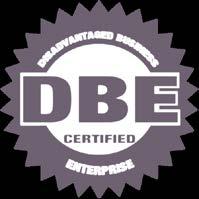




According to a NordLocker analysis of 1,200 companies in 35 industries around the world that were the victims of cyber extortion between 2020 and 2021, construction is the top industry targeted by ransomware attacks. In the event of a ransomware attack, your company may be prevented from accessing computerized records such as drawings, engineering notes, communications, contracts and change notices as well as the systems and portable devices used daily. This loss of essential access to your data can be catastrophic.
Sophisticated and ever-changing ransomware infections —the malicious software (malware) that fully encrypts data on the computer device and/or those that steal
data and then require you to pay for the decryption key —have been advanced to the point of daily prevalence. The costs associated with these attacks and the damage done increases nearly every day. Cybercriminals have advanced the capabilities of malware to not only encrypt your data, but they can send the accessed data externally. And even if you pay, they can come back to extort funds and cause additional data breaches.
A recent U.S. government interagency report found that, on average, there are thousands of daily ransomware attacks, and cybercrime damages are expected to exceed $6 trillion annually in the next 12 months.
Ransomware exploits human and technical weaknesses to gain access to data and technical infrastructure in order to

deny an organization access to its own data by encrypting it. Ransomware is likewise known to carry additional malware infections with other malicious payloads, including spyware applications that may be installed, including ones that steal, and then exfiltrate usernames and passwords, non-public information (NPI), and other confidential information about the computer, the user, and the data used by the organization. Given how lucrative it is for those who deploy it, one can assume these attacks will continue to grow.
Fortunately, there are measures known to be effective in preventing the introduction of ransomware and recovering from an attack. Here are several areas that, with proper implementation and ongoing assessment,

will help support your efforts in ransomware attack prevention and recovery from a general data privacy and cybersecurity perspective.
The data you use must be assessed at least annually to confirm you are meeting the laws and regulations for utilizing that data. It is mandatory that covered organizations and their business associates (vendors, third-party, etc.) conduct an accurate and thorough risk analysis of the potential risks and vulnerabilities to the confidentiality, integrity, and availability of all the protected data the entity creates, receives, maintains, or transmits or otherwise interacts with.
It is expected that organizations will use a documented and standard process of risk analysis and risk management that satisfies the specific standards and implementation specifications of the laws. It is likewise expected the organization is implementing security measures to a reasonable and appropriate level to protect that data.
An effective vendor management program is key in your ongoing protections. You need to know how, where, and when your vendor will protect your data. Not all contracts with a vendor share the protections with you and many times they place the full burden on you. It is critical that you understand what both your responsibilities are and that you bind them via those contracts to meet your needs.
A program with at least annual vendor audits is required in many instances and should be in place now.
Here are some ongoing prevention controls to consider:
1. Conduct ongoing, documented and thorough information security risk assessments

Maintain an ongoing information security risk assessment program that considers new and evolving threats and adjusts to changing standards for user authentication,
layered security, and other controls in response to identified risks. Identify, prioritize, and assess the risk to critical systems, including threats to applications that control various system parameters and other security and fraud prevention measures. In addition, ensure that third party service providers meet your expectations, not theirs.
2. Securely configure systems and services
Protections such as patch management, logical network segmentation, offline backups, air gapping, maintaining an inventory of authorized devices and software, consistency in configuration, physical segmentation of critical systems, and other controls may mitigate the impact of a cyber-attack involving ransomware.
3. Protect against unauthorized access by:
● Limiting the number of credentials with elevated privileges across the organization, especially administrator accounts and the ability to easily assign elevated privileges that access critical systems.
● Reviewing access rights twice a year to reconfirm access approvals are appropriate to the job function.
● Establishing stringent expiration periods for unused credentials, monitor logs for use of old credentials, and promptly terminate unused or unwarranted credentials.
● Implementing multi factor authentication protocols for systems and services (e.g., virtual private networks) and access to any data.
4. Perform security monitoring, prevention, and risk mitigation
Monitor system alerts to identify, prevent, and contain attack attempts from all sources. Wherever possible, implement an Endpoint Detection & Response (EDR) solution and Mobile Device Management (MDM) applications.
5. Update training programs
Conduct mandatory information security awareness training across the organization at hire and at least annually. This should include how to identify, prevent, and report phishing attempts and other potential security
incidents. Ensure the training reflects the functions performed by employees, and if possible, include random email phishing and social engineering tests.
6. Implement and regularly test controls around critical systems
Ensure that appropriate controls, such as access control, segregation of duties, audit, fraud detection, and monitoring systems are implemented for systems based on risk by:
● Limiting the number of sign-on attempts for critical systems and lock accounts once such thresholds are exceeded. Implement alert systems to notify employees when baseline controls are changed on critical systems.
● Testing the effectiveness and adequacy of controls at least annually.
● Encrypting sensitive data on all portable, internal, and external facing data storage devices and systems, for data in transit and, where appropriate, at rest.
7. Document, review, update, and test computer security incident response and business continuity plans periodically but no less than twice annually
Test the effectiveness of incident response plans at the organization and with third party service providers to ensure that all employees, including individuals responsible for managing risk, information security, vendor management, fraud detection, and customer inquiries, understand their respective responsibilities and their organization’s protocols. Ensure processes are in place to update, review, and test incident response and business continuity plans addressing cybersecurity
threats involving extortion. Ensure that incident response and business continuity plans are updated to address notification of service providers, including Internet service providers (lSP), as appropriate, if the organization suspects that a DDoS attack is occurring.
8. Utilize the standard practice for backing up data (known as the 3-2-1 rule)
● (3) Create up to at least three copies of the data;
● (2) In two different storage formats;
● (1) With at least one copy located offsite and if needed, air gapped.
9. Participate in industry information-sharing forums Incorporate information sharing with other organizations and service providers into risk mitigation strategies to identify, respond to, and mitigate cybersecurity threats and incidents. Since threats and tactics change rapidly, participating in information-sharing organizations can improve an organization’s ability to identify attack tactics and to mitigate cyber-attacks involving ransomware malware on its systems successfully. In addition, there are government resources, such as the U.S. Computer Emergency Readiness Team (US-CERT), that provide information on vulnerabilities.
There is no one silver bullet that will protect you and your data. The programs and processes noted above must work in concert with all your other controls to help in effectiveness; however, you must still be prepared to respond to an event or breach, and that requires auditing, assessing, training, and testing diligence across your environment.
The Bonadio Group introduced a new brand, FoxPointe Solutions, in 2019 to support businesses’ growing and evolving needs for information risk management (IRM). FoxPointe Solutions offers a full range of IRM services, including cybersecurity, HITRUST, PCI compliance, IT internal audit, penetration testing, and more.
Carl Cadregari, executive vice president in FoxPointe Solutions’ Information Risk Management Division, has more than 28 years of experience providing actionable technology, cybersecurity and data governance architecture, controls auditing and general cybersecurity planning.


Walden Savings Bank is committed to helping local businesses by providing a wide array of commercial loan products that will allow you the flexibility to run your business and remain focused on growth. Complex projects, construction or renovation, let Walden Saving Bank simplify the loan process. Our commercial term loans are designed to assist companies interested in expansion, renovation, long-term working capital, machinery/equipment acquisition and rolling inventory.
We offer:
• Competitive interest rates
• Flexible terms
• Experienced advisors


• Fixed and stable payments

• Loan terms range from 12 to 72 months
• Interest rates can be fixed or floating

During the past year, this column has addressed the many Human Resource issues facing our members and it appears that many of the challenges are not industry specific. A recent survey that asked businesses to rank their Top Five HR challenges in 2022 returned the following results:
1. Employee retention and attrition
2. Staff welfare and resilience
3. Employee engagement and experience
4. Staff planning, including flexible workers
5. Talent attraction and recruitment
However, one concern that keeps rearing its head and includes all the Top Five wrapped into one huge ball of wax: The ability of employees to work remotely for all or part of the work week.
Before you dig in your heels and say that employees will not work from home now that the COVID threat has lessened, let’s talk about how a pre-emptive strike on the part of business owners can improve employee retention and attrition, enhance staff welfare and resilience, create a higher level of employee engagement and experience, make staff planning more strategic and provide a valuable perk for talent attraction.
As we learned from Elon Musk and his Twitter debacle, dropping the hammer and forcing the workforce to choose between working at the office or leaving the company had devastating results. Musk was forced to backpedal and make concessions in order to retain his current staff and rehire the folks who kept Twitter running.
In other words, take that challenge and turn it into an opportunity to make your workplace the model for employer-employee relations.
● From an employer’s perspective, remote workers may not be as productive and not being onsite limits accountability. The concept of teamwork becomes much more difficult to embrace. In addition, staff collaboration and socialization is reduced, which can negatively affect the workplace.
● From the employee’s perspective, working remotely actually makes them more productive because they tend to work more “off” hours, they are not wasting windshield time traveling to the office, their exposure to workplace health hazards is reduced and there is more of a work/life balance.
It is not an all or nothing solution. Can some of your staff work remotely a day or two? Can you schedule one or two days each week when all employees are onsite for meetings and project participation? Can you give your employee weekly production goals that are measurable and achievable so that results become a non-issue?
And it’s not rocket science – it’s common sense. For example, payroll can be done from anywhere. Customer service can be done from anywhere (unless you have a storefront where customers show up). Outbound sales calls can be made from anywhere. All an employee needs is a laptop, a printer/copier and a cellphone – all of which should be provided by the business for proper oversight. The employee must agree to

have dependable internet access, a secure office in their home, locked file cabinets for document storage and the promise to work regular business hours. There should be clear communication - preferably written - of employer expectations. A “Working Remotely” company policy should be included in the Employee Handbook and distributed to all.
There are some employees who can’t work remotely because of their job duties, so be sure that is listed in their job descriptions so there is no confusion, no misunderstanding. Be fair to employees who can work remotely and make it available to all who qualify to avoid any legal issues. Just to be clear, some companies need the staff onsite every day because of the nature of their business or staffing. Having employees work remotely is simply not an option.
So just for a second, think of how remote workers can change the business for the better. The employees become engaged and more loyal to the company. Engaged employees are generally more productive, thus helping the company’s bottom line. There are no snow days. The business has another arrow in its quiver to recruit new talent. The days when everyone is onsite allows for team building, live project participation and employee recognition.
There are not too many downsides except maybe changing the way you think about working remotely.

The Construction Contractors Association of the Hudson Valleyis grateful to our Diamond Sponsors* for their exceptionally generous commitment to the CCA and the work we do on behalf of our members, our industry, and our partners in the building trades:
AFFINITY BST ADVISORS
BEAM ENTERPRISES, INC.
BARONE CONSTRUCTION GROUP, INC.
●HOLT CONSTRUCTION CORP.
●IRONWORKERS LOCAL 417
●INTERNATIONAL UNION OF OPERATING ENGINEERS LOCAL 137
LABORERS’ INTERNATIONAL UNION OF NORTH AMERICA LOCAL 235
MARSHALL AND STERLING, INC.
●M&T BANK
PARAMOUNT BUILDING CONSTRUCTION, INC.
PERRECA ELECTRIC, INC.
SERVICE SCAFFOLD COMPANY, INC.
TECTONIC ENGINEERING CONSULTANTS, GEOLOGISTS, & LAND SURVEYORS
TRI-STATE DRYWALL AND ACOUSTICAL, INC.
(*DIAMOND SPONSORS AS OF JAN. 6, 2023)
CCA Diamond Sponsors enjoy all networking, educational, and promotional opportunities, including: One year membership to the CCA, SMACNA or FERCA; four full page ads in On the Level; guaranteed foursome and prominent signage at the CCA Golf Outing; and two tickets to the Lobster Bake, Annual Dinner Meeting, and Holiday Get-Together. Diamond Sponsorship is $4999, a $1300 savings if all benefits are purchased separately. For more information call the CCA office at 845-562-4280.
Alan C. Mack, elite aviator, war hero and author, will be the keynote speaker at the CCA Annual Dinner Meeting.
Mack, who also serves as Orange County Deputy Commissioner of Emergency Services, was a U.S. Army helicopter pilot during Operation Enduring Freedom in Afghanistan in 2001. His book, “Razor 03: A Night Stalker’s Wars,” chronicles Mack’s training and combat missions, including the hunt for Osama Bin Laden in the mountains of Tora Bora, rescuing “Lone Survivor” Marcus Luttrell in the Kunar Valley, and being shot down by Taliban fighters during Operation Anaconda.
Logging more than 6,700 hours of flight time, of which over 3,200 hours were flown with night vision goggles, Mack’s many awards include the Legion of Merit;

two Distinguished Flying Crosses; three Bronze Star Medals; three Meritorious Service Medals, and 10 Air Medals; one with Valor device, Combat Action Badge, and the Army Broken Wing award. He also served three years as the Commander of the United States Military Academy’s Flight Detachment at Stewart International Airport in Newburgh.
His experience and leadership traits put him at the forefront of several special operations, some still too classified to discuss. As keynote, Mack will share his unique stories of success, tragedy and ultimate happiness.

Mack began working for Orange County in August 2016 as deputy commissioner of emergency services
The CCA Annual Meeting is a members-only event and will be held April 27 at Newburgh’s beautiful Powelton Club. For more information about the Annual Meeting call the CCA office at 845-562-4280.
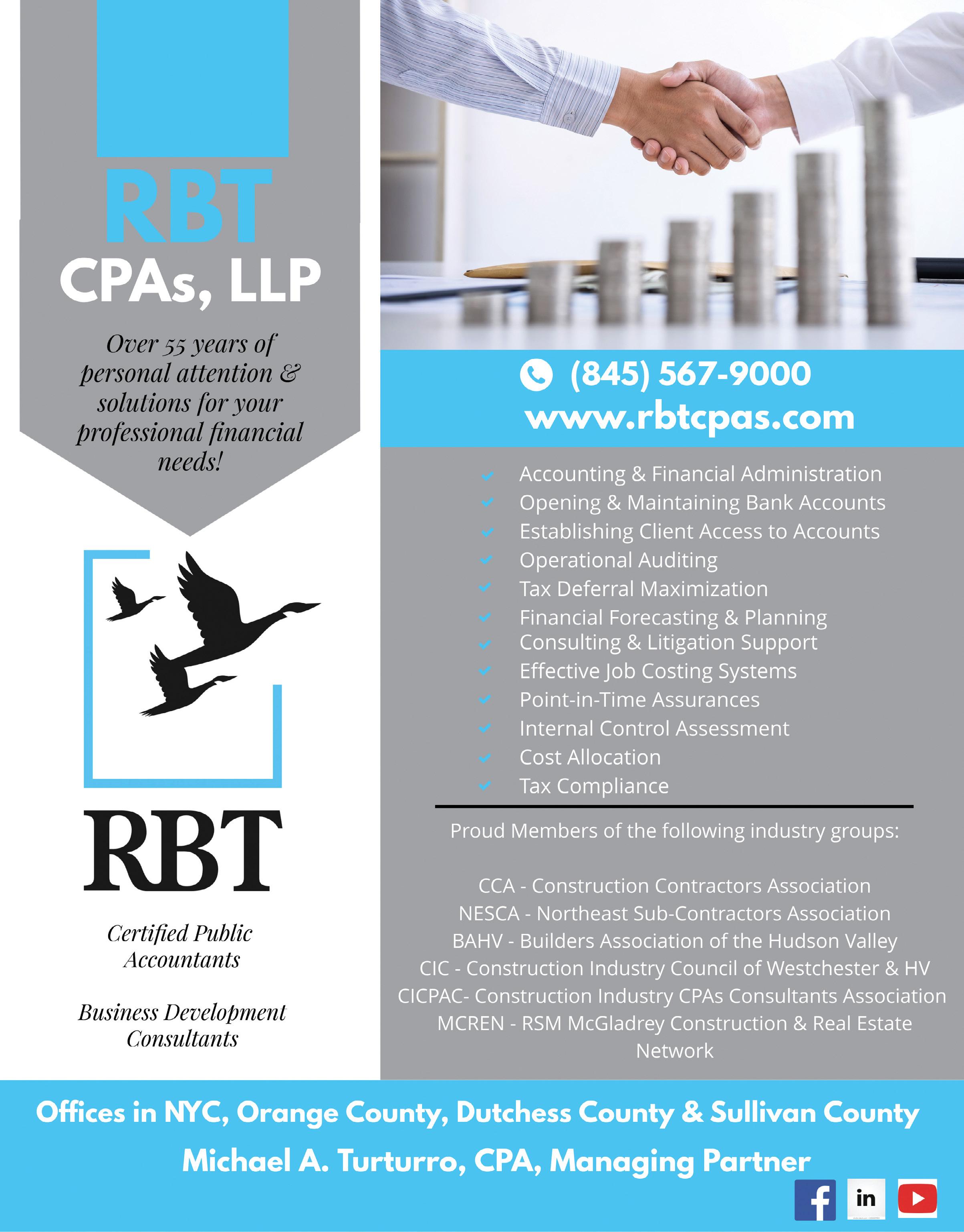
If you work night, rotating, or extended shifts — common for those in the construction and related trades and industries — your body’s natural sleep and wake rhythms and work schedule aren’t aligned. That means you likely aren’t getting enough sleep, and the quality of the sleep you are getting isn’t as restful as it should be.
It also puts you at a higher risk for injury. A recent study by the National Sleep Foundation’s and the Department of Labor found that sleep-deprived people are 70 percent more likely to be involved in a workplace accident than their well-rested counterparts. That’s because inadequate sleep leads to impaired reaction time, lapses of attention, errors of omission and a compromised ability to problem solve.
Decreased alertness from worker fatigue has additionally been linked to increased illness and injury costs, time off due to related illness, and high workers’ compensation costs. In fact, accident and injury rates are 18 percent greater during evening shifts and 30 percent greater during night shifts when compared to day shifts. Research also indicates that working

12 hours per day is associated with a 37 percent increased risk of injury.
All together, a lack of sleep costs $136.4 billion in fatigue-related, health-related lost productive work time.
Operating a motor vehicle or equipment is especially risky. “Drowsy driving” is the cause of hundreds of thousands of car wrecks each year, resulting in an estimated 6,400 fatalities. Meanwhile, National Sleep Foundation data shows that six in 10 Americans admit they have driven when they were so tired that they had trouble keeping their eyes open.
Ideally, we would all get rest our body needs, but for many of us the solution isn’t quite that simple. But there are ways to improve the quality of the sleep you do get.
HERE ARE SOME TIPS:
Keep your bedroom dark. Turn down the lights, and, if you have to sleep when the sun is up, install light blocking curtains. A dark room tells your body that it’s time to sleep. Wear sunglasses after work. If your work day ends in the bright morning or afternoon light, put on sunglasses before you walk outside. Sunlight suppresses melatonin production, so too much exposure at the end of your workday can make it more difficult to sleep when you get home
Use a sound machine. Sound machines help reduce external noises
and help create a sleep-friendly environment. This can be particularly helpful if other members of your household or neighbors are up when you need to sleep.
Set a meal scheduled. People who eat meals at the same time every day had better sleep health than those with inconsistent meal schedules.
Skip the caffeine. Leading up to your scheduled bedtime, only consume caffeine if you need it to help you drive safely. Too much caffeine stimulates your brain and body and will interfere with meaningful rest. Caffeine isn’t just in coffee — it’s in chocolate, tea, even ice cream — so check the ingredients.
Seek light exposure when you wake up. While dim, dark environments help you sleep, bright, natural light tells your body to wake up. If you’re waking in the dark to go to work, invest lamps and lighting that simulates daylight.

Maintain a sleep schedule, even on your days off.
There’s a very good chance you are.
While you may not be able to control your work schedule, you can learn to identify the signs that it’s time to pull over to a safe spot for a nap, drink a caffeinated beverage, or switch drivers:
• Yawning often
• Difficulty keeping eyes open or rubbing your eyes
• Trouble remembering the last few miles you’ve driven
• Missing an exit or not following a street sign or traffic signal

• Drifting into another lane or onto the shoulder
• Hitting a rumble strip


Still on the fence about whether your business needs a vibrant digital media presence with which to broadcast your message? If you’re still not convinced that a digital platform is a vital and essential tool, maybe you’re also committed to the coal fired steam engine and baking your own bread each day?
Don’t get me wrong. I am a guy who splits his firewood, repairs
anything I can, and I still love to read a printed newspaper. But even I have had to come to terms with a staggering reality:
Retail print’s influence is 20 percent of what it used to be, at best.
I came to this shocking realization just recently as I was advising a friend in politics. I was about to lecture him on the importance of maintaining a great relationship with
your local newspaper. You know, the kind printed on paper.
Sure, it’s still solid advice. I believe in journalism and that most journalists are hard working people and looking for honesty. Newspapers still exist and people like me still read them.
But what’s changed drastically is the power of newsprint - ink on paper - which not too long ago was the
single most important way to get your message out. Now, so much of the information we consume is digital, delivered continually through smart phones, tablets, laptops and even our watches.
For example, in a recent interview with Rolling Stone, Jann Wenner, co-founder of the influential publication, said recording artists once depended almost exclusively
on magazine reporters to get their message to the public. Then, they’d have to wait for the reporter to write the story and for the magazine to publish. Add more time for delivery — either through mail or newsstand sales — into the hands of the intended audience.
Today, Wenner said, musicians speak directly to people — and in far greater numbers — using tools like Twitter, Facebook, TikTok and Instagram, and they can do it in real time.
It may seem contradictory to write about digital media in a print magazine. Rest assured, print’s not dead — you may be holding a magazine in your hand right now — but digital media has collapsed the paradigm and print is no longer enough. On the Level is a quarterly publication, and a great one. However, it’s also posted online to the CCA’s website in order to reach even more readers, and the CCA has been on Facebook for several years.
So how does this shift affect your organization’s advertising, informational, and messaging strategies?

We once depended on our friendly newspaper advertising representative to provide readership and coverage data. They’d tell us, “This paper is read by X number of people and
we print X number of copies.”
Truth is that information was often estimated, so it was impossible to tell precisely how many people truly read the paper, who they were, and how much time they spent looking at your advertisement or article. Did they read it? Did they linger on your ad? Almost impossible to know.
Digital marketing empowers you to target your audience with precision, and analytics enable you to track and measure the benefits.
And instead of having someone else tell your story — and adding their own spin — your message is direct and uncorrupted, without the middle person.
Also, no more waiting for the local paper’s print schedule to fall in line with the message you need to get out. Want to recognize an employee? Give them a shout-out on your socials. Have a job opening? Post the job today, right from the construction site. Offering a new service? You can tell your customers instantly.
Digital media can keep you up-to-date with colleagues and make you a more effective networker. Follow your colleagues and engage with their accounts. Yes, you’ll still get to go to chamber breakfasts (they are great) but when you see folks there not only will you immediately recognize them - after all, you’ve seen their headshot on LinkedIn, or
their family on Facebook - you’ll also know a little bit about their life and company.
Remember, personal relationships improve business partnerships and friendships. When clients connect with you via social media and see you as a relatable, good human, it can take the sting out of challenges you may face in doing business together.

The ability to collect payments online is also a great option for many businesses. Yes, it may cost a few bucks on percentages, but it’s great customer service, one many people say they prefer instead of mailing a check. We live in the age of debit cards and credit cards. Get your payments guaranteed on the front end.
In November, Orange Ulster BOCES needed help encouraging voter support of a $159 million capital project, which would create great local construction jobs and vastly enhance the school facilities where students prepare for careers in the building trades.
The day of the vote arrived. In the old days we’d work the phones and pass out flyers, and other work intensive yet somewhat effective tools. Instead, I called the CCA and within an hour we created a short video featuring Local 17’s Dean Tamburri and I stressing the vote’s importance. It was quickly posted to the CCA Facebook page, where it was viewed and shared by an audience that clearly cares about construction projects in the Hudson Valley, and education.
If you ever purchased space in the local paper you know how costly it can be, even for a small advertisement or classified ad. But ten, even five years ago, everyone read the paper, so you needed to place those ads.
Today, print newspaper readership has dropped and so has coverage, so newspaper advertising isn’t nearly as effective as it used to be. Meanwhile, creating a digital presence such as a Facebook or Twitter page is free, and you probably already have a website.
You may still need to pay for advertisements, but digital advertising on digital news sites is typically far less costly than the print counterparts, and offer the added benefit of analytics enabling you to assess precisely who those ads have reached. You can also link these ads directly to your social media posts or web page.
Ultimately the bond passed by fewer than 100 votes. Dean and I like to think we had a little something to do with that.
Just the other day a member of the CCA told me that he didn’t believe everyone knew about his companies’ offerings and services. We then talked about how to fix that. In a few minutes the answer was clear: increase awareness on social media, target your audience and make some videos that tell your customers what you do. We even talked about adding a QR code to the company business cards linking directly to its website.
As you look to build your company’s future, I encourage you to really and sincerely talk to your staff and leadership team about digital marketing and social media and ask, are we taking true advantage of the new wave of opportunities?
Want to talk more? Please reach out.
I’m happy to guide you to a couple of professionals who really get it.

Alan Seidman, Executive Director of the Construction Contractors Association of the Hudson Valley, was recently recognized by a local university and a veterans’ organization.
Dominican University New York honored Seidman along with the Beckerle family of Beckerle Lumber Supply Co. at the university’s 29th Annual Grand Reception, held in October at the Old Tappan Manor. The honorees were chosen for their outstanding professional leadership, community involvement, and philanthropic works.
“Having gotten to know Alan over the past several years, I have come to admire his wit, his sense of ethics and loyalty and his dedication to making the Hudson Valley a better place to live and work,”
said Joseph Valenti, Vice President for Institutional Advancement at Dominican University, as he presented the award. “He and his family are people that we are fortunate to have in our community.”

The Rumshock Veterans Foundation, an Orange County non-profit working to improve veterans’ physical, mental, and emotional health, also honored Seidman at their Second Annual Reception. The proceeds from the event, which was held at the Walden Firehouse Social Hall, will help house local homeless veterans, beginning with the foundation’s first project in Port Jervis.
In presenting the award, Seidman’s strong patriotic beliefs, his chairing of the Military Appreciation Picnic at Stewart Airport and service on the Board of the Purple Heart Hall of Honor were noted.

Marine Corps Maj. Gen. James Everett Livingston, who was awarded the Medal of Honor for heroic actions during the Vietnam War, was also honored at the reception.
“This thing is emotional for me because it’s about taking care of our brothers and sisters who have worn the cloth of the nation,” Livingston said. “When you go all over the country and see organizations willing to take care of those who have served and sacrificed, that is the American spirit, the America we all dreamed to live in.”




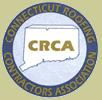


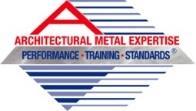






Cele
Guided by a desire to provide excellent and comprehensive legal representation, the attorneys at Catania, Mahon & Rider, PLLC offer strategic and cost-efficient solutions to businesses and their owners.

• Acquisitions, Sales and Mergers
• Business Succession Planning and Estate Planning
• Shareholder, Partnership and Operating Agreements


• Commercial Transactions, Leasing and Financing
• Business Breakups
• Employment Law and Regulatory Compliance
Michelle Rider mrider@cmrlaw.com

• Trademarks and Copyrights
• Corporate Governance
CONSTRUCTION SERVICES
Contract Drafting, Negotiation and Review
• AIA, Consensus Docs, EJCDC, State/Agency Specific Insurance Review (IRMI Certified) Construction Dispute Resolution
• Payment Disputes/Delay Damages
• Wrongful Termination
• Mechanics Liens and Payment Bond Claims
MWBE/DBE
• Certification and Compliance
mcatania@cmrlaw.com
Thank you to everyone who made the 2022 CCA Holiday Get-Together and Charity Event one of the best yet! It’s always wonderful to usher in the season and connect with friends and colleagues, and we are so grateful to be part of such a caring community.


The event, held Nov. 28 at the Powelton Club, was attended by about 150 CCA, SMACNA and FERCA members, our union partners, local representatives, and colleagues from organizations that share our mission to foster the continued successful growth of
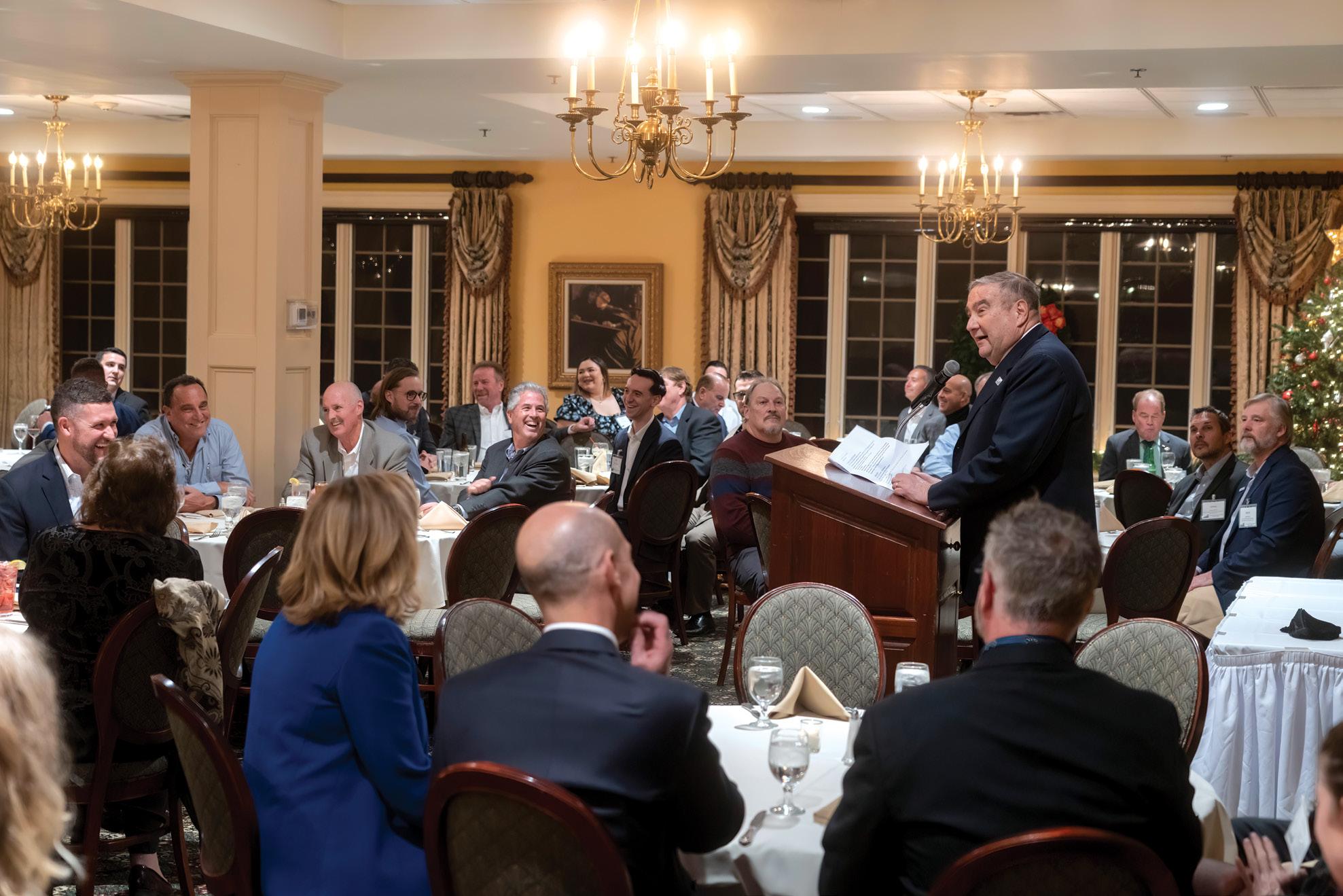

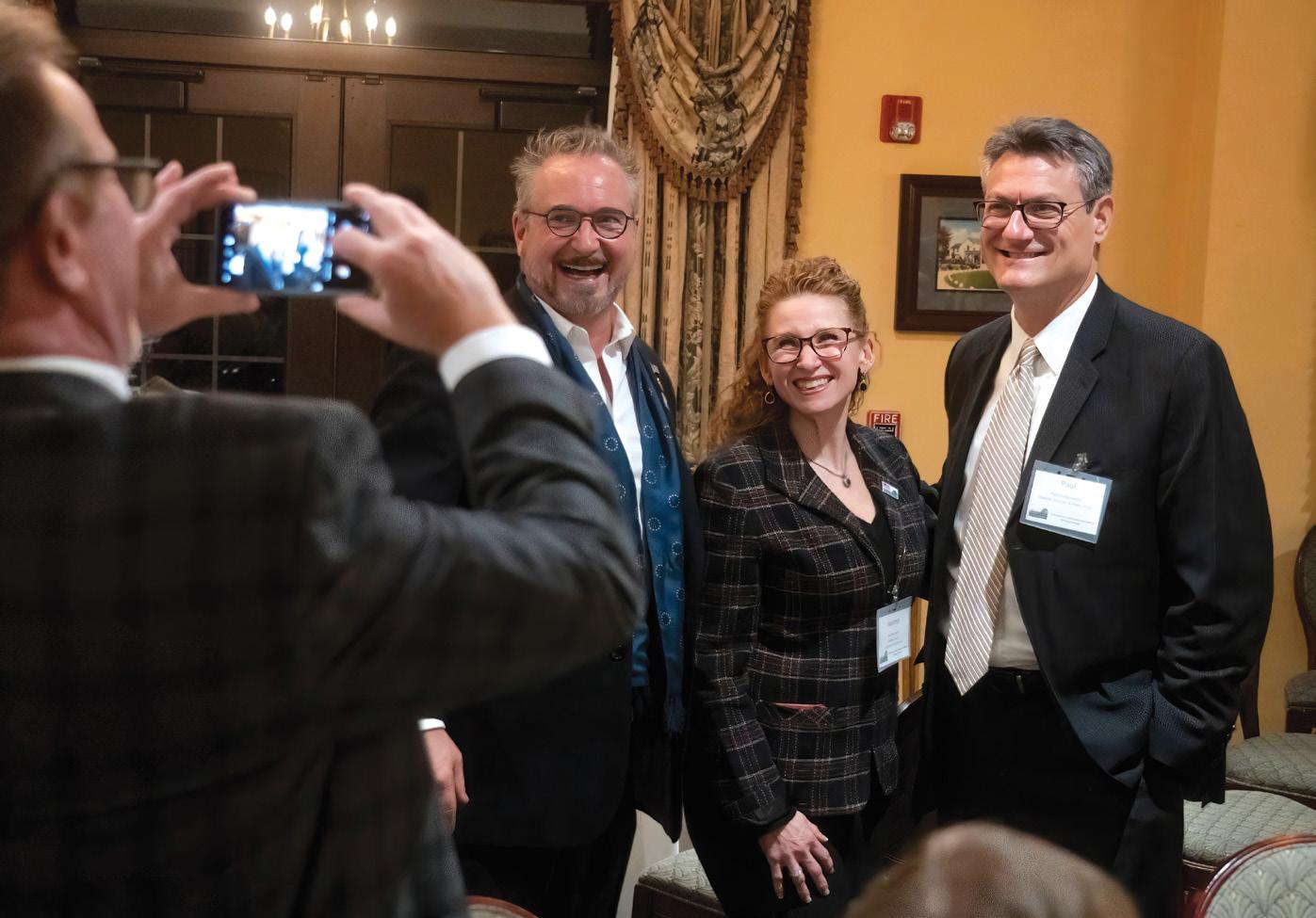
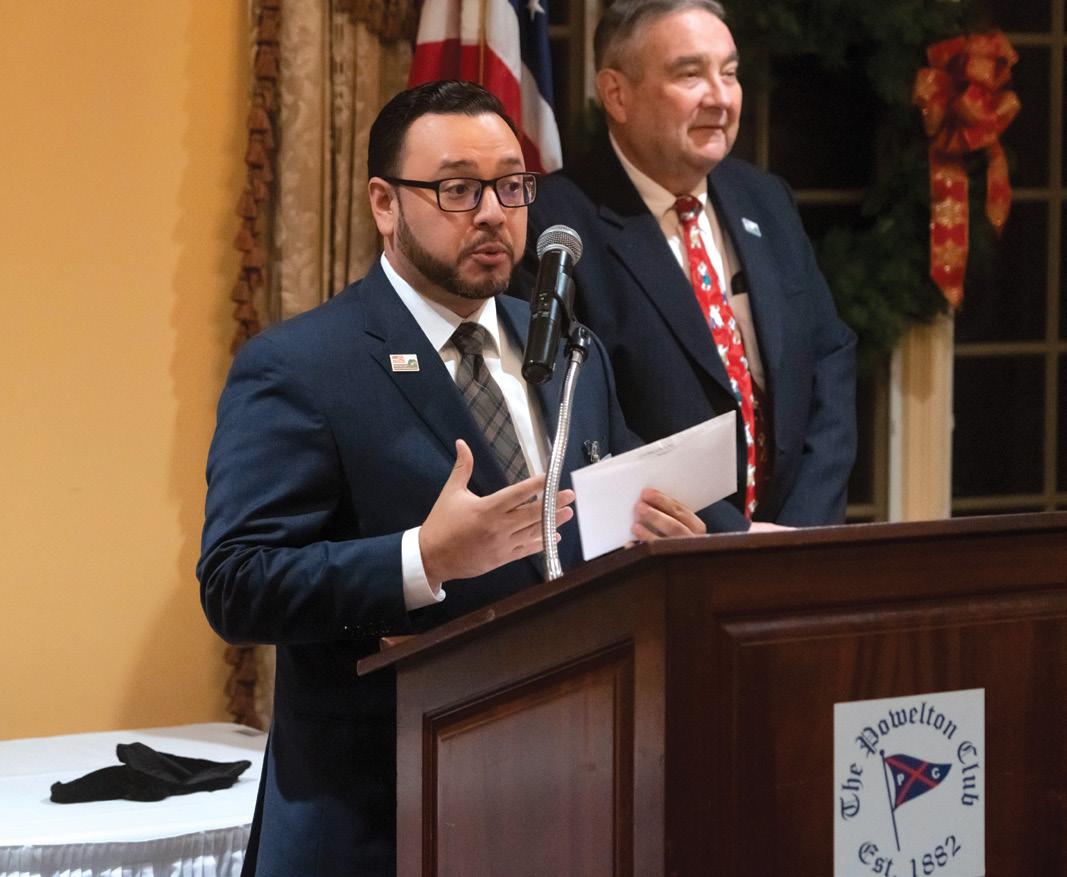

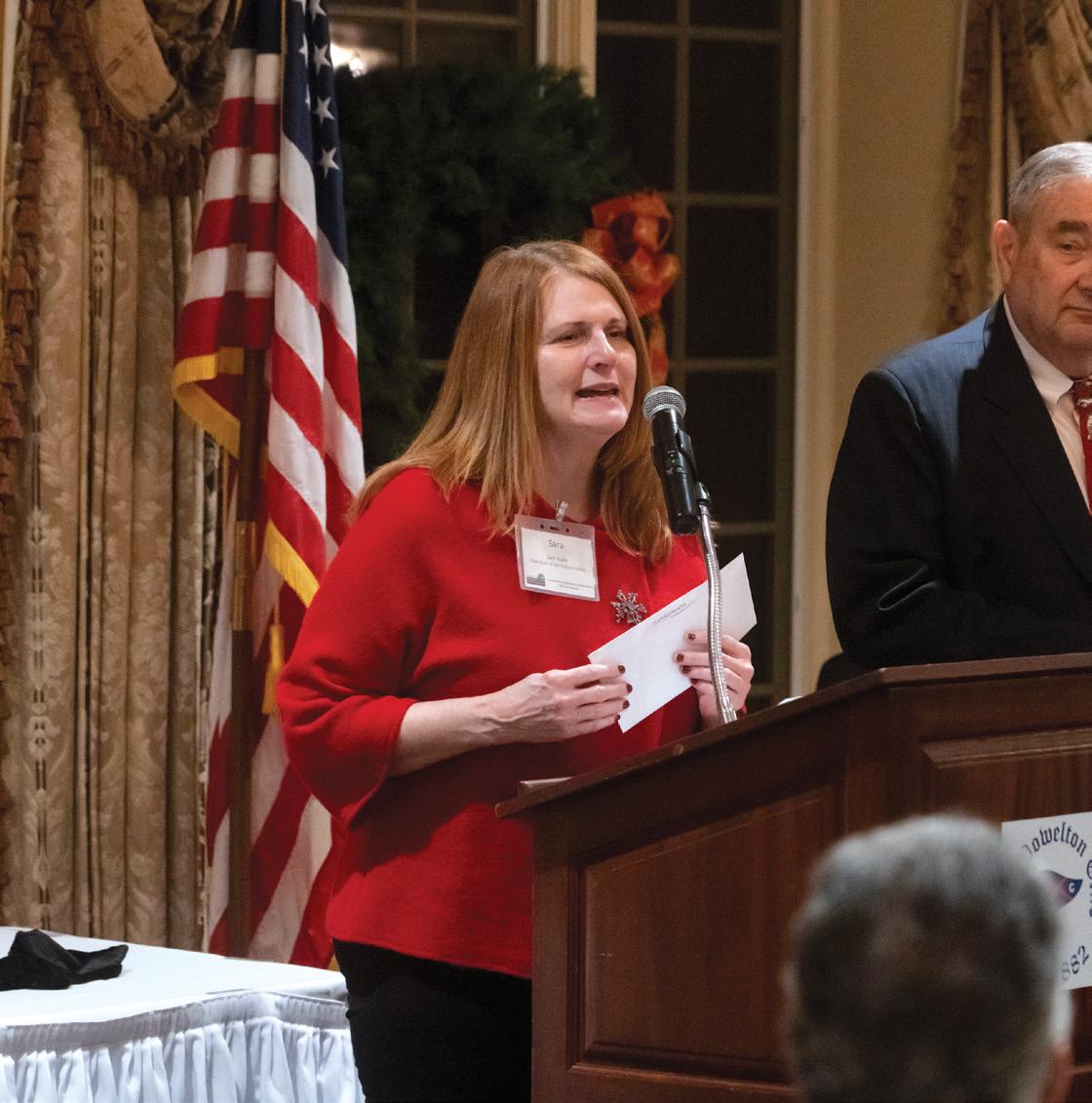


The North Atlantic States Regional Council of Carpenters Local 278 and Resorts World Hudson Valley — a project on which CCA member Holt Construction was construction manager and then general contractor — were each celebrated at The Orange County Partnership’s Annual Event.
The sell-out event, held Dec. 6 at The Barn at Villa Venezia in Goshen, was attended by upwards of 600 people, all there to celebrate the vision and accomplishments of the region’s builders, planners, developers and leaders.
“We celebrate every victory together because the victories belong to all of us,” said Maureen Halahan, president and CEO of the Partnership. Halahan’s team at the OCP works with commercial real estate brokers, developers, site selection firms and economic development agencies to find the most advantageous and cost-effective locations for corporate attractions and expansions.
The mood was celebratory and social as attendees looked to the New Year with optimism. Projects are planned, the economic conditions in Orange County are bright, jobs are being created.
The outlook, they said, is good.
Conor Eckert, the Partnership’s Senior Development Officer and Vice President of Business Attraction, said there is “one key goal,” and that’s securing projects for Orange County.
“Just wait ‘til you see what we have in the works for 2023,” Eckert told the crowd.
Three awards were presented, each recognizing those who have brought jobs and economic opportunity to the area.
Jeff Crist of Crist Apple Bros, received the 2022 Quality of Life Award. Members of the Crist family have been farming in Orange County for more than 100 years, and now maintain a close partnership with Angry Orchard, which has a popular cidery in Walden.
 CCA Director of Communication
CCA Director of Communication
The North Atlantic States Regional Council of Carpenters Local 279 received the Partnerships 2022 Spirit of Innovation Award, which recognizes those in Orange County who are at the forefront with their current and forward-thinking initiatives Local 279 has exemplified this with their newly renovated state-of-theart training facility in Rock Tavern, Career Connections partnerships, Carpenters AOS degree with SUNY Sullivan, the Sisters in the Brotherhood Pre-Apprenticeship Program and their volunteer work.
The award was accepted by Council Representative Matthew Ross, who said the union intends to “bring the trades back as a real first (career) choice.”
Resorts World Hudson Valley, which on Dec. 28 opened its doors in the old Newburgh Mall, received the 2022 Alliance for Balanced Growth’s Golden Shovel Award.


The $32 million project resulted in the renovation of the former Bon-Ton department store into a sprawling electronic gaming casino, boasting 1,200 slot machines and electronic table games. The construction effort — led by Holt Construction — employed approximately 200 people, and its opening promises to bring 250 full-time jobs. The adaptive reuse of empty retail space transformed 90,000 square feet in the shopping center, and it is hoped that the casino will serve as a catalyst for the revitalization of the mall which, like many shopping centers, has struggled in recent years.
“Thank you to the men and women of the trades who built our facility,” said Robert DeSalvio, President of Genting Americas East, adding that the experience of working with Holt and local skilled labor “has been incredible.”
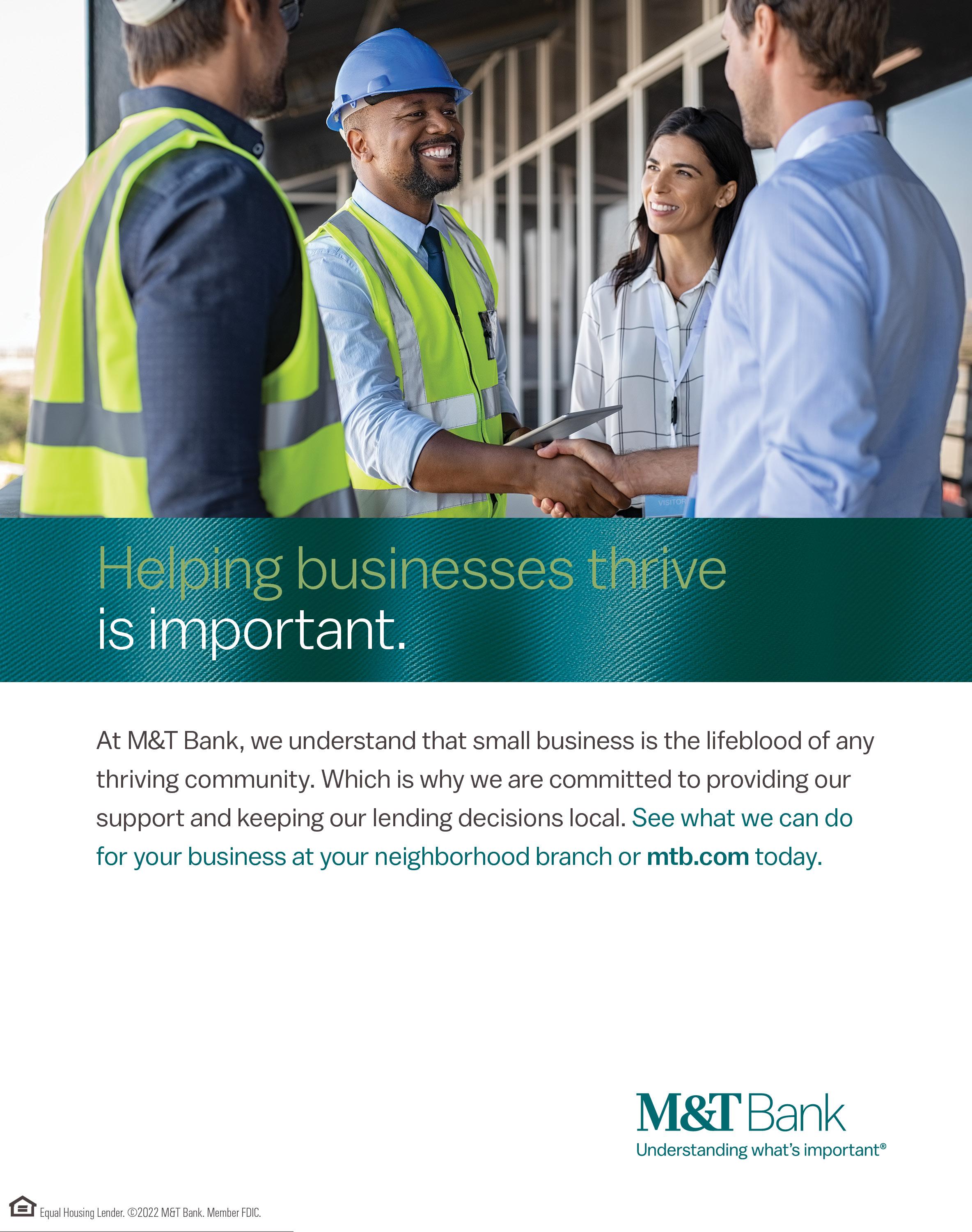






Veterans who are transitioning out of active-duty and into the civilian workforce will have greater access to careers in the skilled trades, thanks to the passage of the Brave Act.
The Bringing Registered Apprenticeships to Veterans Education Act is included in the recently passed Omnibus Appropriations Bill for Fiscal Year 2023, a bipartisan funding package of 12 appropriations bills which includes $772.5 billion for non-defense discretionary programs such as education, health, child care, and community projects. It also includes $858 billion in defense funding.
The BRAVE Act, which went into effect January 2023, is designed to enhance access to a career in the skilled trades for veterans transitioning out of the military.
As part of the measure, the Department of Labor will be required to provide service members with a list of registered apprenticeship programs before they leave active military service. It also calls for the creation of a publicly accessible and user-friendly website where veterans can readily find information about apprenticeship programs and extends the post 9/11 GI Bill benefits to participants in these registered programs.
The goal is to connect veterans to resources that are eligible for Veterans Administration education benefits,
ensuring that as they plan their life outside the military they have up-to-date information.
Also a part of the package are critical investments in worker protections, job creation, and veteran support, such as $118.7 billion — a 22 percent increase — for VA medical care, and increases in funeral benefits for eligible veterans.
Every year, some 200,000 people leave the military and return to life as civilians, according to data from the Department of Labor, which further reports that 92 percent of apprentices retain employment after graduation and earn an average annual salary of $72,000.
As the country continues to face a workforce shortage, those veterans could be a vital part of the solution and help meet those workforce demands, labor experts say.
The BRAVE Act further fortifies the SMART Heroes program, the joint initiative by SMACNA and SMART designed to recruit veterans into the skilled trades.
Said Stan Kolbe, SMACNA’s Executive Director for Government and Political Affairs, “After military service, The BRAVE Act will boost economic opportunities for vets in skilled construction careers which include a living wage, health and pension benefits and a distinct and respected career pathway.”
By Lisa Ramirez
Metal Framing


Dr ywall
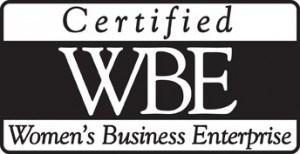
Acoustical Ceilings

Doors & Har dware
Insulation
Specialt y Ceilings

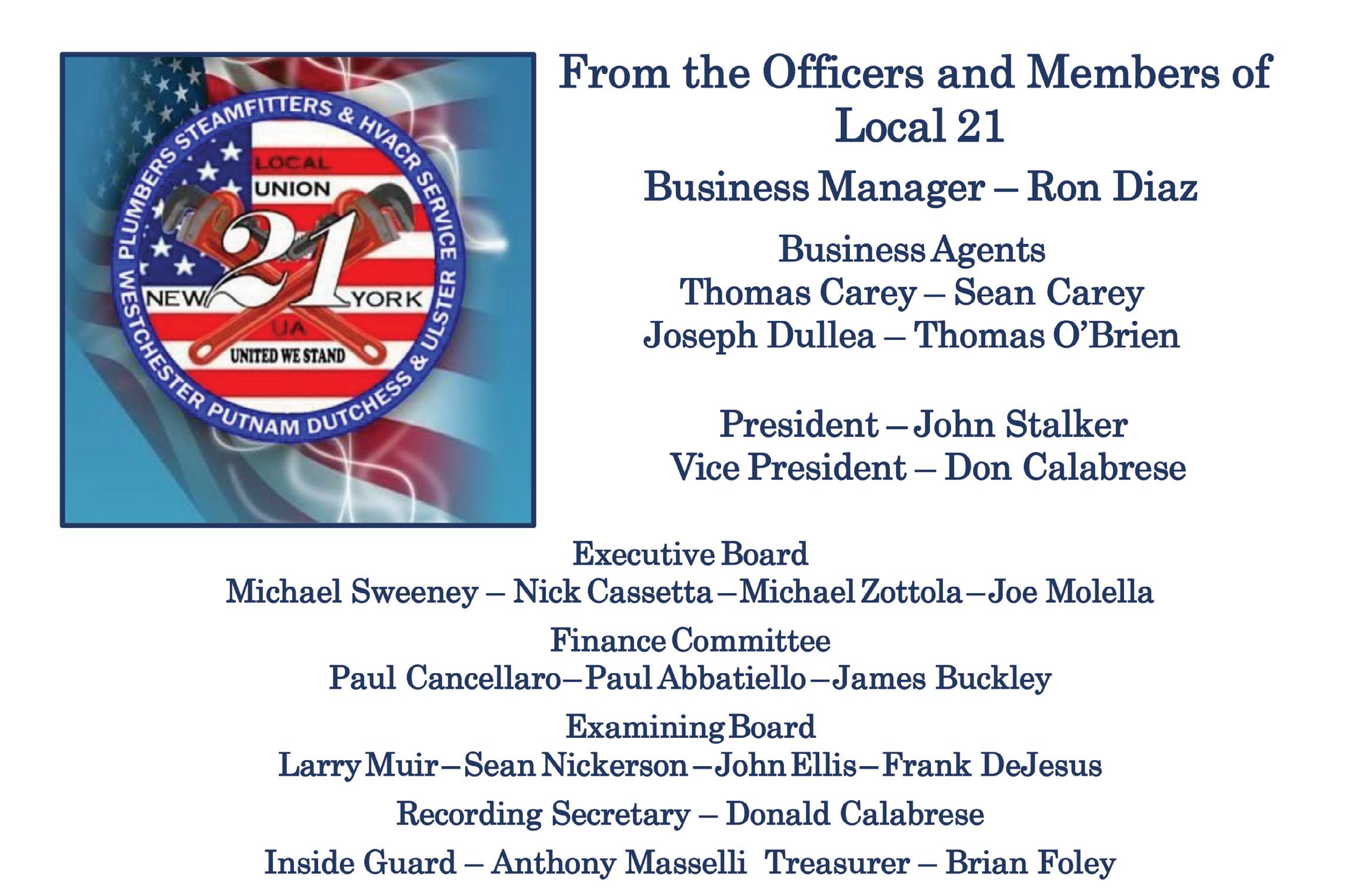

In the last few years there have been a lot of mentions of project labor agreements (PLAs) in the news. Executive Orders, news articles, editorials and endless pun-dits bringing to the forefront a practice older than the Industrial Revolution.
This shouldn’t come as a surprise given that the president himself boasts that he has used the word “union” more times than his previous seven predecessors combined. It also doesn’t hurt that between the Infrastructure Investment and Jobs Act, the Inflation Reduction Act, and the CHIPS and Science Act, there will be just shy of $1.2 trillion worth of new federal investment in everything ranging from traditional infrastructure construction to clean energy generation and industrial construction, all of which the recently signed Executive Order on Use of Project Labor Agreements for Federal Construction Projects could come into play and require the use of PLAs.
We all know that building trades unions are staunch advocates for PLAs and that building trades unions exist to protect and benefit their membership, the men and women
who work with the tools. There is little debate about whether PLAs protect workers’ rights, save lives or provide middle-class careers for the millions of Americans who work under them; they undeniably do.
But what gets discussed significantly less is what contractors get out of working under PLAs.
At their core, PLAs standardize the market. They provide stability for construction projects by ensuring compliance with workplace safety, wage protections and equal opportunity requirements. PLAs establish terms and conditions that contractors and their employees must adhere to. With parameters set up in advance to accommodate and navigate every contingency, PLAs protect the contractor with courses of action for the project curveballs they can anticipate and those they can’t. These agreements create an apples-to-apples opportunity for all
Daniel Hogan CEO, The Association of Union Constructors (TAUC)
involved. However, what needs to be brought to the forefront of the conversation are the ways PLAs increase a contractor’s competitiveness.
The construction market tends to fluctuate, and the labor requirements of its contractors and the employment opportunities for those that work within it are no different. After all, all construction jobs are temporary. During normal operation, the labor requirements of a contractor often mirror a typical
bell curve. Starting small at the onset of a project and growing to peak employment, before decreasing as the critical path subsides and the project is ultimately completed. This “labor curve” presents contractors with a series of important choices that can all affect their bottom line.
For starters, where does a contractor obtain the workforce that it needs? The construction industry is cyclical, and all projects must be completed. It does not make sense to have employees sitting around like cordwood waiting for your company to land its next project. The overhead cost of employing an idle workforce would be prohibitive.

Then how do you ensure that a prospective workforce has the experience and skills necessary to complete the work safely and on-time that you, as a contractor, have been contracted to perform? How do you evaluate tens, if not hundreds or thousands of candidates effectively and efficiently?
Enter, project labor agreements.
PLAs establish a formal relationship between contractors and organized labor. Organized labor, in turn, provides access to its hiring halls, which consist of millions of highly trained, skilled and experienced construction
workers who are the safest in the industry. In fact, most of these individuals have all completed the equivalent of a bachelor’s degree in their respective craft’s discipline. They have completed four or more years of a Department of Labor registered apprenticeship program that is funded and paid for by the industry as a whole and not by an individual contractor (or the federal taxpayer.)
Consider the effect that has on a contractor’s bottom line. PLAs provide access to an on-demand, highly skilled workforce, professionals who have completed standardized training, collectively paid for by all participants in the industry. When your project is complete, they return to their union hall until needed again. These are tangible benefits that cut contractor overhead and reduce costs, putting them in a more competitive position for their next bid proposal and potential winning contract. The voracious demand in the construction and maintenance markets makes these advantages exponentially more important.
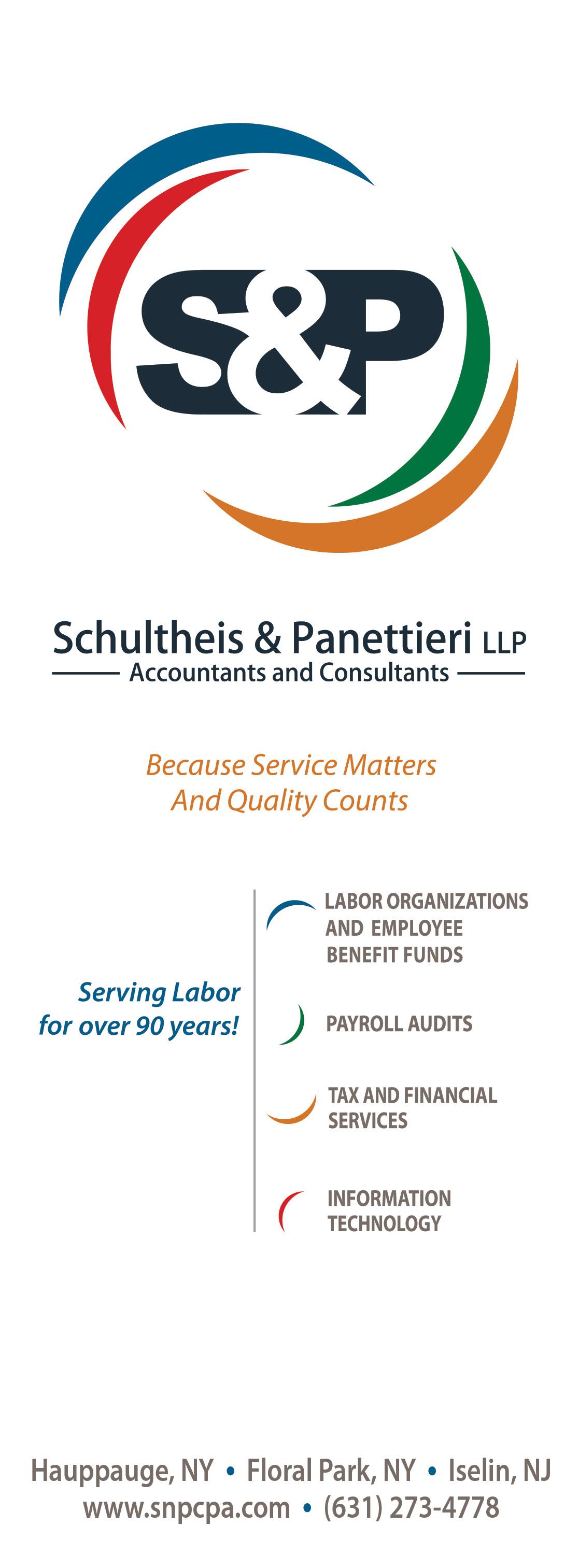
PLAs protect contractors from countless unforeseeable events that can happen on a jobsite, but they also drive efficiencies and create economies of scale that ensure a contractor’s competitiveness and contribute to a healthy construction industry for the future.
Daniel Hogan is the CEO of The Association of Union Constructors (TAUC) and serves as Impartial Secretary and CEO of the National Maintenance Agreements Policy Committee, Inc. TAUC is made up 1,800 contractor companies that utilize union labor for their projects, as well as local contractor associations and vendors in the industrial maintenance and construction fields.TAUC’s mission is to act as an advocate for union contractors and enhance cooperation between the three entities involved in the successful completion of construction projects: the union, the contractor and the owner-client.
This column originally appeared in the Fall 2022 issue of The Construction User, the official magazine of TAUC (www.tauc.org).



“By
- Benjamin FranklinGrinch jokes aside, the list is a good reminder of the importance of worksite safety, especially when working at heights. Citations for Fall Protection (inadequate or nonexistent fall protection systems) remain in the top spot for the twelfth year in a row. When you include categories such as Fall Training (proof that those toolbox talks actually take place); Ladders (overloading, improper landing areas/clearance), and Scaffolding (failure to provide fall protection/
arrest systems), fall-related citations for fiscal year 2022 accounted for over half of all violations.
Hazard Communication citations remain a perennial problem. Citations for mislabeling hazmat or for failing to maintain MSDS on site continue to plague contractors. Indeed, many of the remaining categories on the list involve, at least in part, documentation and record keeping violations. Given the ever-increasing penalty amounts —
up to $14,502 per violation and $145,027 for repeated or willful — what action can contractors take to lower their risk of citation and, more importantly, reduce worksite accidents? Create, revise and implement site specific safety plans.
A site-specific safety plan (SSSP) is a written outline that addresses safety procedures, reporting obligations, and other rules, regulations and obligations at a particular location. It describes the steps a contractor has and will take to protect employees and others at the site from accidents and hazardous conditions.[1]
A SSSP will identify site-specific hazards and detail procedures that are to be put in place to minimize exposure to each. It also describes how safety concerns, injuries and illnesses are to be reported and documented. Emergency preparedness plans, such as those for evacuation, rescue, and medical emergencies, should also be included.
Site specific plans should not be an afterthought. Instead, Kevin A. Viaña, Senior Vice President and co-construction group leader at Marshall & Sterling, Inc., advises that SSSP should be developed during the pre-construction or bid stage. This allows “the actual costs of implementing the plan to be incorporated into the bid.”
Site inspections are crucial as well, as they often uncover potential safety hazards not otherwise visible from the plans. For example, locations of temporary structures and staging areas can impact scaffolding which in turn can render an otherwise acceptable safety policy or system impractical or ineffective.
While a SSSP’s outline and general requirements typically carry over from job to job, specific requirements may not. Potential hazards can vary greatly from job to job, as well as the plan of action for each. Emergency measures that work in New York City may not be effective in Albany.
Project type further impacts SSSPs. A shovel ready multi-family project with open access might involve far fewer hazards and safety concerns than a rehab project at an existing hospital. The same goes for each SSSP’s communication plan. A subcontractor working for a CM at a private job may have a far different communication tree than a Prime on a public job being supervised by a CM. Add an owner’s representative to the mix and the plan might require further revision.
• Provide Details
An SSSP should provide enough detail so that its objectives can be met. For example, reporting criteria for hazardous conditions is hardly effective if the responsible individuals are neither identified nor the methods of notice stipulated. This is why the recent trend of issuing boilerplate or canned SSSPs, none of which provide the necessary project details but instead simply restate OSHA and other regulations, is so troublesome. This practice causes further problems where the cited regulations are updated but the plan is not.
SSSPs deserve just as much attention as any other contract document, perhaps even more. Fortunately, there are many online resources that contractors can look to for help. OSHA’s website offers much information, including a step-by-step guide on how to implement a safety program.[2] Your insurance agent can also be a tremendous resource, helping you create a comprehensive safety plan specific to your trade and its inherent hazards, and to identify the measures and training required to prevent or lessen the risk of injury and to quickly respond to accidents should they occur.
Finally, don’t forget implementation! The best plan is useless if it is not followed. This is why construction-oriented Insurance Risk Manager/Brokers offer loss control services, services that include, per Kevin Viaña, “routine site visits to make sure the employees and sub trades are following the plan as well as make suggestions on improving the plan as the project progresses.”
[1] See “29 CFR 1926, Safety & Health Regulations for Construction.”
[2] https://www.osha.gov/safety-management/step-by-step-guide
We’re nearly three years out from when COVID basically shut down the world, setting off global supply chain issues that have yet to return to normal.
While price and supply are stabilizing for some construction materials, they’re increasing in volatility for others. This may be one time the pendulum will not swing both ways. Even though we have a grip on COVID (for the most part), several other factors that caused the supply chain to implode continue, and there’s no timeline for resolution.
The labor shortage (which is expected to worsen as U.S. infrastructure work gets underway); the war in Ukraine; China’s faltering economy; a huge increase in supply chain cybercrime, and regulations all have a role to play in the supply chain’s recovery.
The outlook is changing month-tomonth, with some estimating a return to normalcy by the end of 2023 or, maybe, 2024. This begs the question: By that time, won’t new approaches have taken root, forever changing how the supply chain works (or doesn’t work)?
Border States, a supply chain solutions company, reports that by mid-September lead times were decreasing, but remained 85 percent longer across all markets and products than pre-pandemic. Similarly, the port backlog is decreasing but it is not back to
normal. For construction, distribution equipment (circuit breakers, load centers, panels, switches); EMT fittings (1/2”-4” compression and set screw connectors); wiring devices and wall plates; PVC and weatherproof boxes; fuses; meter sockets and hubs; ground rods, and automation products controls are among the categories that still require extended lead times include
In fact, ConstructionDive.com in September warned, “The reduction in oil prices is slowly being reflected in materials like roofing products, but that remains an area of concern. Similarly, delivery costs are easing, but there is still a shortage of drivers … Our greatest challenges are anything that involves metal, wood or glass in construction.”
In October, FreightWaves.com reported that all major indices used to track supply chain performance show it’s improving, but still has a long way to go to get back to pre-pandemic levels. For example, as of one Sunday in October, “ship-position data and queuing lists showed 109 container vessels waiting off U.S. ports ... That’s down from a high of over 150, but still far above the pre-COVID normal in the single digits,” FreightWaves noted.
Susan Howell, CPA, Partner RBT CPAs LLP
diversified supply chain with enough slack to ride out uncertainty; build for continuity; invest in systems that enable smooth operations in periods of high labor turnover’ and consider smart hedges. Make strategic decisions about where to hedge (e.g., pre-buying raw materials) and consider areas most susceptible to destabilization.”
What can
A Supply Chain Management Review article advises firms to “proactively address supply chain disruption; focus on building a
Rather than risk an influx of projects and construction growth, some firms are opting for early-stage procurement over the “just in time” inventory strategy of the past. With early-stage procurement, all supplies and materials are purchased and stored at the start of a project, rather than in phases. This can impact everything from warehouse space and equipment to staffing, procurement, project timelines, budgets, insurance policies, and cash flow. As noted by Jason Earnhardt, Austin Commercial Supply Chain Manager, in Building Design + Construction, “We have essentially become our own in-house logistics company, all in the name of keeping our clients’ projects on track.”
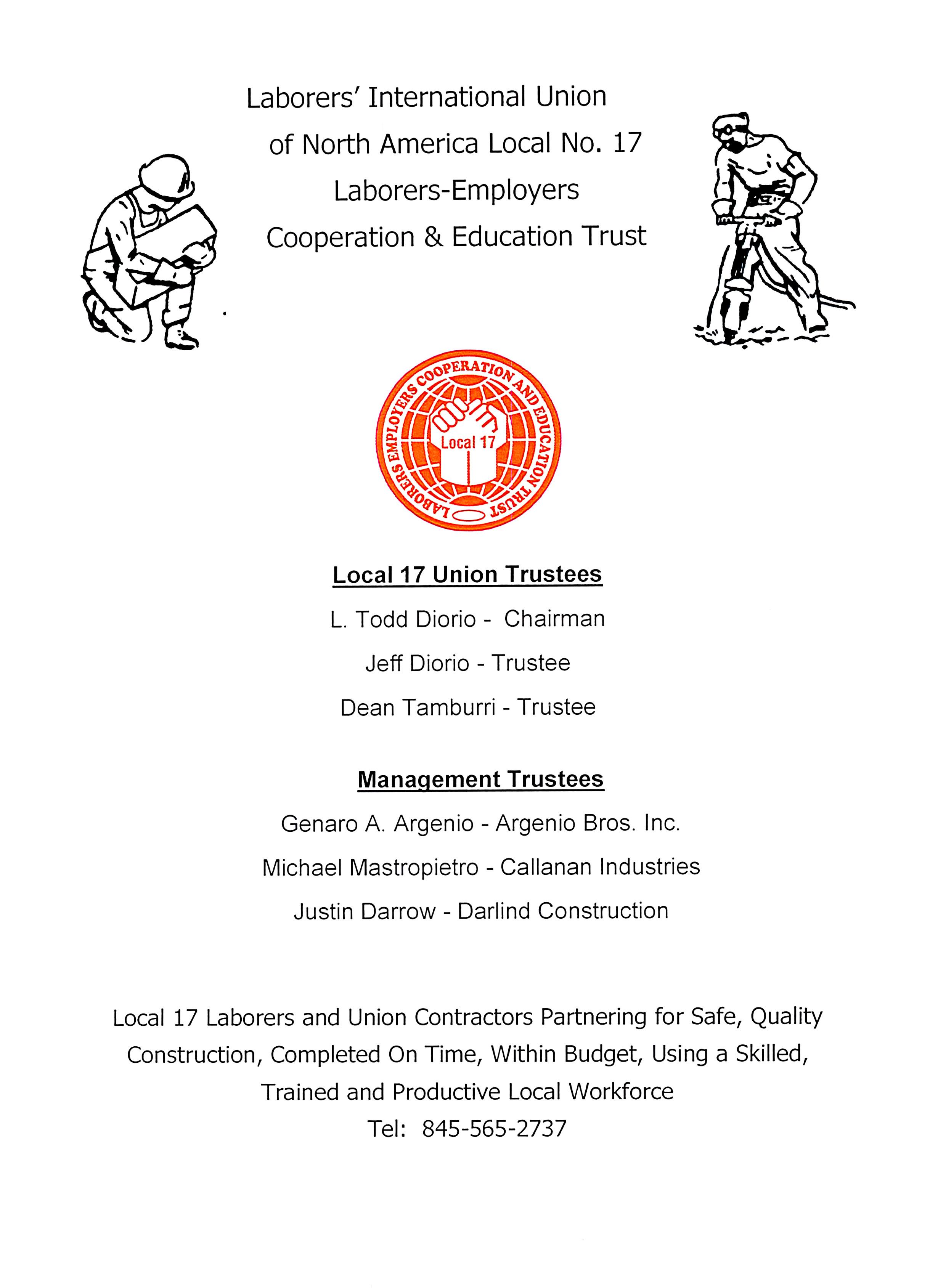
We get it. You are busy writing bids, securing contracts, managing projects, and dealing with personnel issues all day long. But when do you get to plan for your own financial tomorrow and still live for today?

We’ll help you plan to do the things you live for. Whether you are imagining a retirement sailing around the world or just kicking back with your family, we can tailor a plan from a wide range of financial options to make it happen. Our team of financial planning advisors can help identify your financial planning goals and address those needs with investment strategies for potential growth. With the full suite of Northwestern Mutual resources at our fingertips, we also assist business owners in developing succession and estate plans to protect the continuity of their life’s work and position it to flourish in the future.
Patrick A Di Cerbo, CLU®, ChFC®, AEP®, MSFS, CFP® Wealth Management Advisor 518.281.8200 patdicerbo.com pat.dicerbo@nm.com07-1016 © 2021 Northwestern Mutual is the marketing name for The Northwestern Mutual Life Insurance Company (NM), (life and disability insurance, annuities, and life insurance with longterm care benefits) and its subsidiaries in Milwaukee, WI. Northwestern Mutual Investment Services, LLC (NMIS) (securities), a subsidiary of NM, broker-dealer, registered investment adviser and member FINRA and SIPC. Patrick A Di Cerbo is an Insurance Agent(s) of NM. Patrick A Di Cerbo, is a Registered Representative(s) of NMIS. Patrick A Di Cerbo, is a Representative of Northwestern Mutual Wealth Management Company®, (NMWMC) (fiduciary and fee-based financial planning services), a subsidiary of NM and federal savings bank. All NMWMC products and services are offered only by properly credentialed Representatives who operate from agency offices of NMWMC. Certified Financial Planner Board of Standards Inc. owns the certification marks CFP®, CERTIFIED FINANCIAL PLANNER™ and CFP® (with flame design) in the U.S., which it awards to individuals who successfully complete CFP Board’s initial and ongoing certification requirements.















Sitting, from left: Steve Mulholland, Vice President; James D’Annibale, President; Louis J. Doro and Daniel Harden
Standing, from left: Mark DiPasquale, Secretary; Walter “Chip” Greenwood; Dennis LaVopa, Jr., and William Haskel
Missing from photo: Dominick DiViesti, Treasurer, and Richard K. Berg





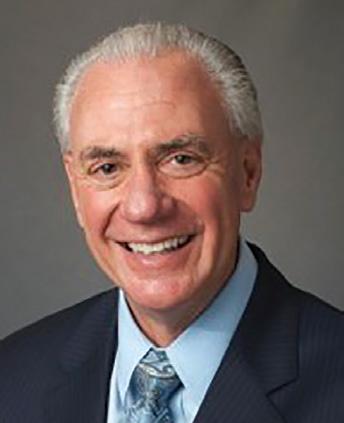

 Daniel Teutul Treasurer
Justin Darrow Chairman Jake Bidosky Vice Chairman
Bernie Hillman Secretary
2023 SMACNA OF SOUTHEASTERN NY BOARD OF DIRECTORS
2023 FERCA BOARD OF DIRECTORS
Alan Seidman Executive Director
Mike Adams Board President
James McGowan 1st Vice President
Joseph Barone
Joe Jerkoski
Roland Bloomer
Kurt Kaehler
Dan Depew
Anthony Perrello, Jr. Mark Stier
Scott Dianis
Alfred D. Torreggiani
Charlotte Van Horn
Joseph Perez 2nd Vice President
Josh Ingber Secretary-Treasurer
Daniel Teutul Treasurer
Justin Darrow Chairman Jake Bidosky Vice Chairman
Bernie Hillman Secretary
2023 SMACNA OF SOUTHEASTERN NY BOARD OF DIRECTORS
2023 FERCA BOARD OF DIRECTORS
Alan Seidman Executive Director
Mike Adams Board President
James McGowan 1st Vice President
Joseph Barone
Joe Jerkoski
Roland Bloomer
Kurt Kaehler
Dan Depew
Anthony Perrello, Jr. Mark Stier
Scott Dianis
Alfred D. Torreggiani
Charlotte Van Horn
Joseph Perez 2nd Vice President
Josh Ingber Secretary-Treasurer
ABM Air Conditioning
Advance Testing Company, Inc.
Advanced Disaster Recovery, Inc.
Affinity BST Advisors, LLC
Alfandre Architecture, P.C.
All Bright Electric
AMX Contracting Corp.
Andron Construction Corp.
Antalek & Moore Insurance Agency
Argenio Brothers, Inc.
Armistead Mechanical, Inc.
Atlas Security Services
B. Miller Masonry, Inc.
Barone Construction Group, Inc.
Barrett Sheet Metal
Basec Corp.
Beam Enterprises, Inc.
Blue Eagle Security, Inc.
BNY Mellon
The Bonadio Group
Broadfield Group, LLC
BST & Co.CPAs, LLP
Butler Construction Group, Inc.
C.B. Strain & Co. (A division of Dynamic Systems)
Callanan Industries, Inc.
Carey & Walsh
Casler Masonry, Inc.
Catania, Mahn & Rider, PLLC
Central Hudson Gas & Electric Corp.
Clean Air Quality Service, Inc.
CohnReznick, LLP
Colliers Engineering & Design CT, P.C.
Con-Tech Construction Technology, Inc.
Couch White, LLP
Council of Industry of Southeastern New York
CSG Partners - ESOP Advisory
Custom Exterior Systems
D & G Electrical Supply Co., Inc
D.A. Collins Construction Co., Inc.
D.L. Flow Tech
Darlind Associates, Inc.
DeBrino Caulking Associates
Delaware Engineering
Ductmate Industries
Durante Rental
Dutchess County Regional Chamber of Commerce
E-J Electric Installation Co.
ECCO III Enterprises, Inc.
EMF Technical Services, Inc.
Enviro-Clean
F & F Mechanical
Fairway Testing Co., Inc.
Federated Mutual Insurance Company
Fischer Group at Graystone Consulting | Morgan Stanley
Ferrari & Sons, Inc.
Goldinson Corp.
Grassi & Co. CPAs
H.T. Lyons Inc.
Halmar International, LLC
Harden Sheet Metal, Inc.
Hauser Bros., Inc.
Helmer-Cronin Construction
Herzog’s Home & Paint Center
Hesnor Engineering Associates
Holt Construction Corp.
Howard Hanna Realty
Hudson Valley Pattern For Progress
iSER Consulting, LLC
J & M Heating & AC, Inc.
James McGowan & Son Masonry, Inc.
Jett Industries, Inc.
John W. Danforth Company
KCM Contracting Inc.
Key Construction Services
Keystone Management Associates, LLC
LeChase Construction Services
Liberty Mutual
Link Metal Finishing Corp.
Liscum, McCormack & Van Voorhis, LLP
Lovell Safety Management Co.
M & T Bank
Marshall & Sterling
Matrix Asset Advisors, Inc.
McGoey, Hauser & Edsall Consulting Engineers
MDS HVAC-R, Inc.
Merrill Lynch
Milliman, Inc.
Modernfold/Styles
Nadoka Luxury Cleaning
New Beginnings Window & Door
Nexgen Protection Services LLC
Northwestern Mutual
NXG Insurance Group
O’Kane Enterprises, Ltd.
Olori Crane Service, Inc.
Orange & Rockland Utilities
Orange Bank & Trust
Orange County Chamber of Commerce
Orange County Ironworks LLC
PCC Contracting, Inc.
Paramount Building Construction, Inc.
Partner Equipment Rental
Pearl River Sheet Metal
Penlyn Construction Corporation
Perfezione Painting, Inc.
Perreca Electric, Inc.
The Pike Company
Pittman & Brown, Inc.
PKF O’Connor Davies, LLP
Price and Price Enterprises, Inc. (DBA Melwain Surety Bonds)
Profex, Inc.
RAL Supply Company
Raritan Group, Inc.
Ray S. Pantel, Inc.
RBT CPAs
Rhinebeck Bank
Rider, Weiner & Frankel, P.C.
Riverside Bank
RKB Sheet Metal
Rockland Business Association
Schultheis & Panettieri, LLP
Schumacher Systems, Inc.
Service Scaffold Company, Inc.
Stacey Braun Associates, Inc.
Steven A. Scala, CPA, P.C.
Sullivan Construction Group, LLC
Sullivan County Partnership for Economic Development
Sullivan Fire Protection Corp.
TDX Construction Corporation
Taconic Heating & Cooling
Taylor Recycling Facility, LLC
Tectonic Engineering Consultants, Geologists & Land Surveyors, DPC
Thomas J. Kempton, Jr., Inc.
Tri Co Electric of Goshen, LLC
Tri State Associated Services, Inc.
Tri-State Drywall & Acoustical, Inc.
Turner Mechanical Service
U.S. Test & Balance Corp.
USI Insurance Services
U.W. Marx Construction Company
Ulster Savings Bank
United Rentals
United Spray LLC
Upstate Electrical, LLC
Walden Savings Bank
Wallkill Valley Federal Savings & Loan Association
Welby, Brady & Greenblatt, LLP
William A. Smith and Son Insurance
World Insurance Associates, LLC
Kurt Kaehler has over 22 years of Electrical Construction experience in the Hudson Valley with 17 of those years conducting Business of Electrical Contracting for Perreca Electric.
Kurt specializes in a broad range of high end general and specialty electrical contracting, design build, telecommunications, fire alarm and security systems along with utilities, renewable energy and Powerhouse Construction.
Mark Stier P.E., P.G. Chief Operating Officer/Executive Vice President, Tectonic
Mark has 36 years experience working in the Hudson Valley and New York City areas focusing investigation, design, construction, instrumentation, and project management for a variety of commercial, industrial and high-rise buildings; bridges and highways; utilities and infrastructure projects; dams, and complex retaining structures.

Mark owns and operates and is the seventh generation involved with Vosburgh Orchards, his family’s apple farm. He also owns/operates Vosburgh Brewing and is a partner in Sloop Brewing.
He holds a bachelors of science in civil engineering from Clarkson University, Potsdam. His licenses include Professional Engineer and Professional Geologist.
Joseph Jerkowski, P.E. Chief Operations OfficerArmistead Mechanical
Joe holds a bachelor of science degree in Mechanical Engineering from Northeastern University and has 35 years of experience in design and construction management in plumbing, HVAC and process piping.
As a professional engineer, he is adept at managing projects from design to completion in the heavy industrial, pharmaceutical, hospital, water treatment and technology fields. Joseph joined Armistead in 1994, and he is a graduate of the MCAA Advanced Leadership Institute. He holds master plumbing and HVAC licenses in Rockland and Putnam counties.
Anthony Perrello Jr., Principal Sullivan Construction Group LLCBorn and raised in the Hudson Valley, Anthony is a home grown-son of the construction industry. As he rose through the ranks to become an owner of a successful concrete company his focus has always been on improving the business practices of his trade.

Anthony is a principal and founder of Sullivan Construction Group, a specialty union concrete construction company signatory with several trade unions in New York and New Jersey. SCG has participated in successful projects such as Frito Lay, PepsiCo, Amazon, Pharmacann, Presidential Container and NYSDOT bridge projects, hospitals and schools.

